Atlanta’s John Marshall Law School (AJMLS) Alumni Association is proud to announce the newly reconstituted Alumni Association Board of Directors. The Alumni Association Board of Directors consists of attorneys, judges, and executive officers in all areas of practice. Many members of the Board are owners of their law firms, while others work for major organizations including Grady Memorial Hospital, Uber, and the United Way of Greater Atlanta.
The 2021 Board was selected by a committee that focused on a wide range of factors to capture a diverse representation of our alumni base, including, range of practice, graduation date, previous Board experience, among others. Board members will serve three-year terms, meet a minimum of twice per year, will promote engagement and participation through involvement, and provide opportunities to recruit new board leaders, volunteers, members, and supporters.
The first meeting of the reconstituted AJMLS Alumni Board was held on January 15, 2021. AJ Doucett, Director of Alumni Relations, said of the Board and first meeting,
“This Board consists of some of the most amazing people I have ever met. The underlying theme during the meeting was the fact that each member was so appreciative of what AJMLS offered them, how it prepared them for the practice of law, and that they were now honored to give back to their law school.”
“When asked, ‘Why did you join the AJMLS Alumni Board?’ they each in their own way embodied our hashtag of #AJMLSProud and want every current student to know why they should also be proud to be an AJMLS student.”
It is Atlanta’s John Marshall Law School’s honor to present to you its 2021 Alumni Association Board of Directors and Officers.
Officers
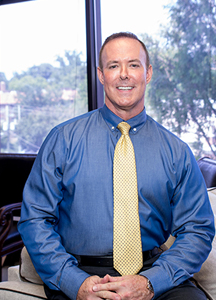
Randy Fry, Class of 1999, Chair
Where were you raised?
Chattanooga, Tennessee
Where did you complete your undergraduate and/or graduate education?
Belmont University, Bachelor of Business Administration
Where do you currently work, position, and responsibilities/area of practice?
The Fry Law Firm; Trial Attorney/Owner; Personal Injury
What do you do in your free time?
I enjoy many fitness related activities including lifting weights, yoga, and hiking. I also love to read personal growth and finance books, travel to as many beaches as possible each year, and keep my french bulldog “Atticus Fry” entertained. Most importantly, I am fulfilled by working with special needs children and adults, staying active with my church, Buckhead Church, and spending time with my friends and family.
Why did you join the Atlanta’s John Marshall Law School Alumni Association Board of Directors?
John Marshall took a chance on me, when many other law schools would not. I learned not only the theory of practicing law while a student at John Marshall, but how to put that into daily practice. I want to do all I can to encourage students, that with hard work and determination, success is in reach.
What do you want current AJMLS alumni and students to know about you?
I applied to 13 law schools; 12 would not give me a chance. The world of academia has always been a challenge for me, but I did well in law school due to a supportive family, and working as a personal trainer in order to maintain my health, financial stability, and sanity. John Marshall gave me the opportunity, and I now have my dream job and career as the owner of a mid-sized personal injury law firm located in midtown Atlanta.
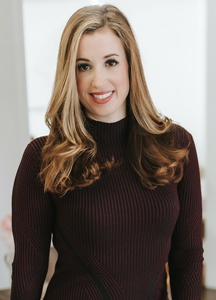
Jennifer Gore-Cuthbert, Class of 2012, Vice-Chair
Where were you raised?
Poughkeepsie, NY
Where did you complete your undergraduate and/or graduate education?
Marist College in New York
Where do you currently work, position, and responsibilities/area of practice?
I am the Owner/Founder of Atlanta Personal Injury Law Group. We Help People & Their Families Navigate The Insurance Process After They’ve Been Seriously Injured in an Accident.
What do you do in your free time?
Spend time with my husband and three kids, work out, study business, travel, and listen to podcasts.
Why did you join the Atlanta’s John Marshall Law School Alumni Association Board of Directors?
To connect with the students
What do you want current AJMLS alumni and students to know about you?
I’m an eternal optimist. I’m still learning. There’s always a next level.
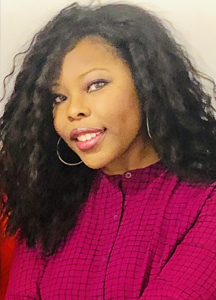
Yashica Marshall, Class of 2013, Secretary
Where were you raised?
Dublin, Georgia
Where did you complete your undergraduate and/or graduate education?
MBS-Barry University, BS/Georgia College & State University
Where do you currently work, position, and responsibilities/area of practice?
Director of Compliance & Risk Management at Morneau Shepell
What do you do in your free time?
My free time is generally spent preparing for my webcast, savoring a nice Pinot and trying to expand my foundational knowledge in areas that interest me.
Why did you join the Atlanta’s John Marshall Law School Alumni Association Board of Directors?
I care about AJMLS. The people and times that I spent there have left a lasting impact on my life for which I am grateful. I hope by serving on the board I will have the opportunity to shape a different narrative about the school where everyone who passed through cares about it too.
What do you want current AJMLS alumni and students to know about you?
My dedication to the board is my personal dedication to them. I am available resource that is always willing and happy to help.
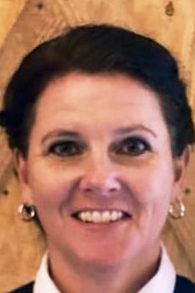
Evie Frye, Class of 2005, Treasurer
Where did you complete your undergraduate and/or graduate education?
Embry-Riddle Aeronautical University
Where do you currently work, position, and responsibilities/area of practice?
Senior Contract Negotiator at Intuitive
Members
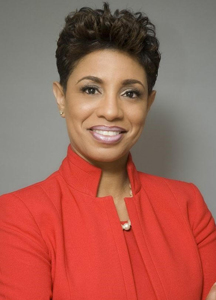
Sonja Brown, Class of 2004
Where were you raised?
Freeport, Bahamas
Where did you complete your undergraduate and/or graduate education?
Clark Atlanta University
Where do you currently work, position, and responsibilities/area of practice?
Cobb County Magistrate Court – Judge
What do you do in your free time?
Spend time with my nieces and nephews, watch college football, teach Zumba, run, and spend time with friends.
Why did you join the Atlanta’s John Marshall Law School Alumni Association Board of Directors?
To build a stronger connection between the students and alumni, and, to continue to raise the AJMLS profile in the Georgia legal community and beyond.
What do you want current AJMLS alumni and students to know about you?
I am committed to service, and believe that we are called to give back to the people and institutions who support us along our journey to success.
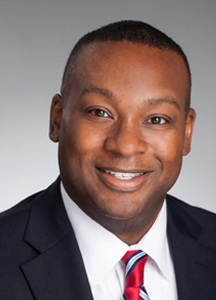
Tavis Knighten, Class of 2005
Where were you raised?
Northwest Ohio
Where did you complete your undergraduate and/or graduate education?
College of the Holy Cross, Bachelor of Arts
Where do you currently work, position, and responsibilities/area of practice?
Sr. Counsel, Insurance Litigation at Uber
What do you do in your free time?
Travel, DIY home projects
Why did you join the Atlanta’s John Marshall Law School Alumni Association Board of Directors?
To help strengthen the AJMLS alumni network
What do you want current AJMLS alumni and students to know about you?
I am proud to be an AJMLS alumnus
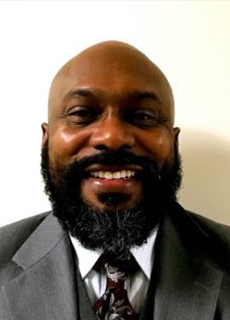
DeAngelo Norris, Class of 2006
Where were you raised?
Monticello, Georgia
Where did you complete your undergraduate and/or graduate education?
Presbyterian College (Clinton, SC)
Where do you currently work, position, and responsibilities/area of practice?
Grady Memorial Hospital Corp. d/b/a Grady Health System Senior In house attorney that handles the full range of transactional, litigation, employment and other risk aversion legal needs for one of the largest teaching hospitals in the nation.
What do you do in your free time?
Beekeeper and drone flyer that enjoys college football on the side.
Why did you join the Atlanta’s John Marshall Law School Alumni Association Board of Directors?
To connect current students to alumni and to help promote positive images of JMLS and it’s vital role in the community.
What do you want current AJMLS alumni and students to know about you?
That my journey of a million miles started with my first step at John Marshall and I enjoy giving back to current students who are taking their first steps.
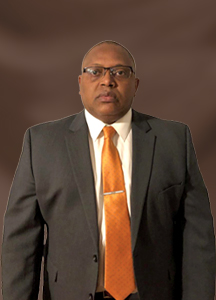
Corey Martin, Class of 2009
Where were you raised?
North Courtland, Alabama
Where did you complete your undergraduate and/or graduate education?
Excelsior College, B.S. Mathematics; Calhoun College, A.S. Mathematics and A.S General Education
Where do you currently work, position, and responsibilities/area of practice?
I am the Managing Attorney at The Law Offices of Martin & Associates, Douglasville, GA. I practice Criminal Defense, Immigration and Personal Injury.
What do you do in your free time?
I like to watch movies and sports, spend time with the family, go for long rides in the convertible and go to comedy shows and car shows.
Why did you join the Atlanta’s John Marshall Law School Alumni Association Board of Directors?
I wanted to give back to my law school in a way that would help to raise our profile in the community and to build relationships with other alumni.
What do you want current AJMLS alumni and students to know about you?
I am the Supervising Attorney for AJMLS’ Veteran’s Law Clinic at Fort McPherson. If anyone would like to Extern or Volunteer at the Law Clinic or at my Law Office, please contact me or Career Services and Professional Development.
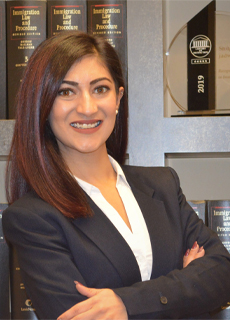
Shilpa Jadwani, Class of 2012
Where were you raised?
I was raised in Gujrat India until I was 7, and then in South New Jersey.
Where did you complete your undergraduate and/or graduate education?
Seton Hall University (Bachelor’s in Psychology & Legal Studies) & Fairleigh Dickenson University (Certificate in Paralegal Studies)
Where do you currently work, position, and responsibilities/area of practice?
Owner and Managing Attorney at One Path Legal specializing in Immigration (nationwide), Family & Business Law (Georgia Only).
What do you do in your free time?
Bollywood Dancing
Why did you join the Atlanta’s John Marshall Law School Alumni Association Board of Directors?
I would want the board and students to know that I love what I do, and I received all the connections, networks, and education that I needed to be successful in the profession from my days at AJMLS. I want to offer the same to the next generation and look forward to continuing to work with other AJMLS Alumni who have the same goals.
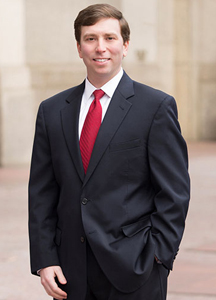
Samuel Samson Sykes II, Class of 2014
Where were you raised?
Atlanta, Georgia
Where did you complete your undergraduate and/or graduate education?
Southern Methodist University, B.A. in Political Science
Where do you currently work, position, and responsibilities/area of practice?
An Associate at Hall Booth Smith, P.C., focusing in general liability and insurance defense litigation.
What do you do in your free time?
Spend time with my family, watch Braves baseball, and play golf when I can.
Why did you join the Atlanta’s John Marshall Law School Alumni Association Board of Directors?
To help promote the great education students receive at John Marshall, as well as to help current students find their own path to successful careers upon graduation.
What do you want current AJMLS alumni and students to know about you?
I am proud of my time at John Marshall, and have seen first hand how students from John Marshall are more prepared for the practice of law than many of their peers. I’m available anytime for mentorship and guidance to fellow John Marshall students/alumni, and will help to continue to build John Marshall’s reputation in the legal community.
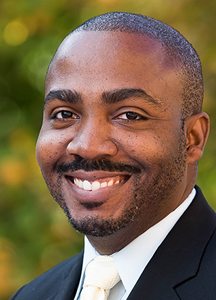
Erik Provitt, Class of 2016
Where were you raised?
Detroit, Michigan
Where did you complete your undergraduate and/or graduate education?
Troy University, MBA Management
Where do you currently work, position, and responsibilities/area of practice?
Equifax- Identity and Fraud Consultant
What do you do in your free time?
Golf
Why did you join the Atlanta’s John Marshall Law School Alumni Association Board of Directors?
I love the opportunity the school provided me and I want to help further its mission via a reengaged alumni board
What do you want current AJMLS alumni and students to know about you?
That “showing up ready to work” is my superpower. I’ll always be present and willing to help wherever I’m needed.
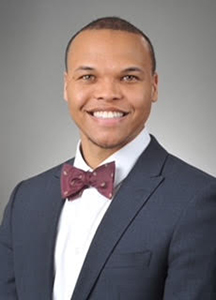
Maurice “Reece” Riden II, Class of 2018
Where were you raised?
Flowery Branch, GA
Where did you complete your undergraduate and/or graduate education?
I completed my undergraduate at Emmanuel College( Franklin Springs, GA).
Where do you currently work, position, and responsibilities/area of practice?
I currently work at Groth & Makarenko as an Insurance Defense attorney specializing in auto collisions and premises liability.
What do you do in your free time?
I enjoy hiking, running, and cycling.
Why did you join the Atlanta’s John Marshall Law School Alumni Association Board of Directors?
I am currently the youngest member on the AJMLS Alumni Board. I look forward to being able to help bridge the gap between the younger alumni and AJMLS.
What do you want current AJMLS alumni and students to know about you?
I am always willing to help any AJMLS student. I remember having several mentors while at AJMLS, and i look forward to being able to do the same for the next generation.


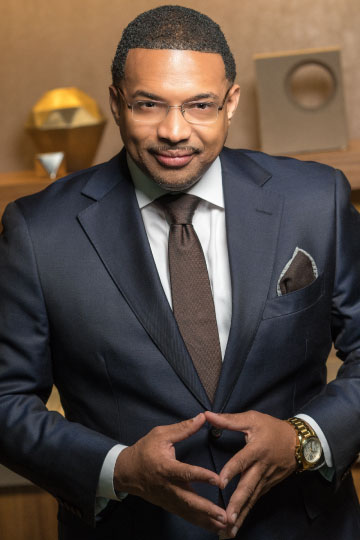

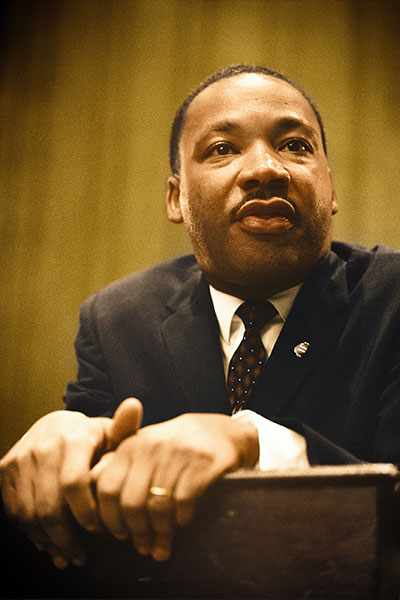

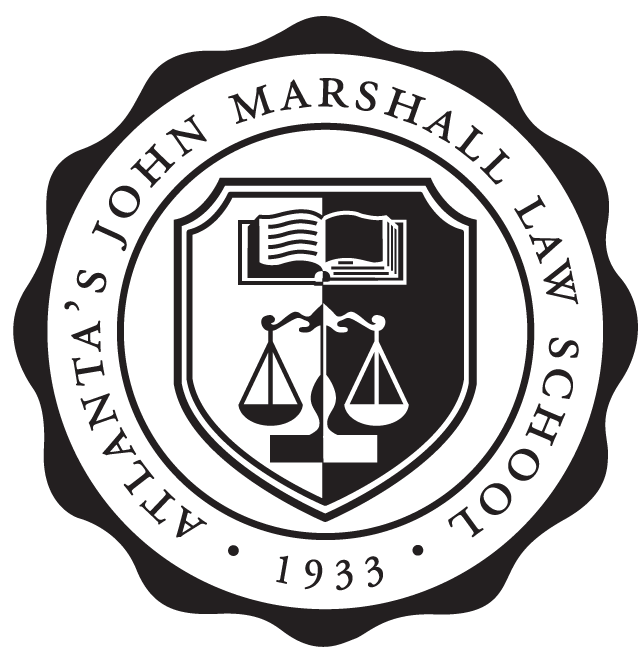




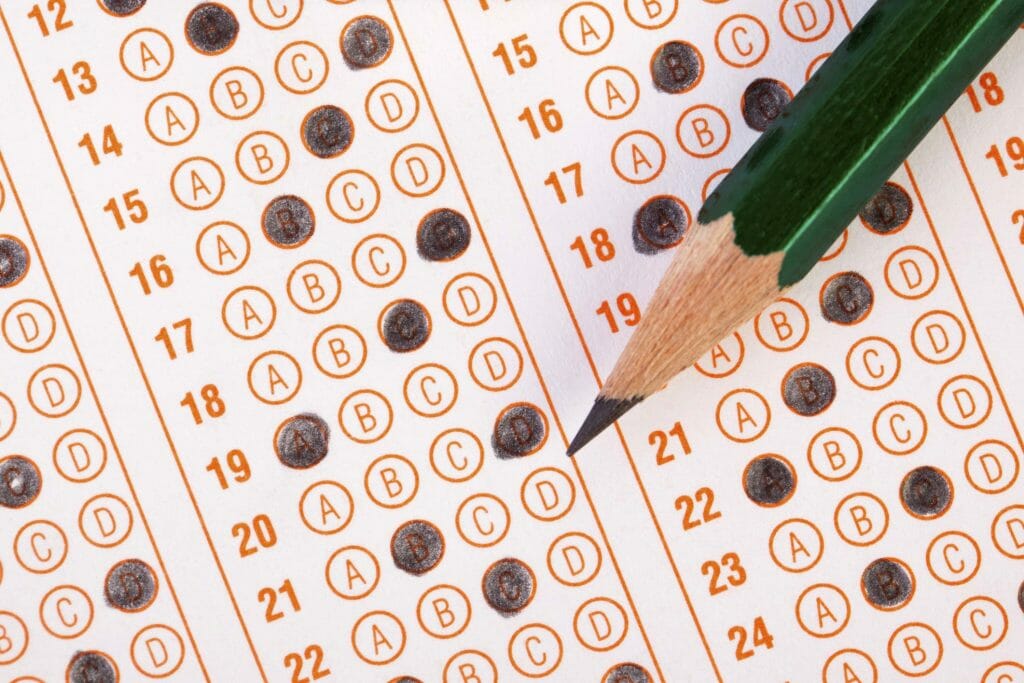
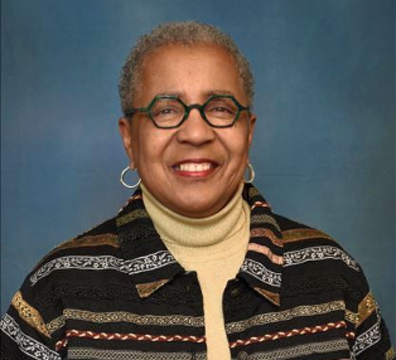
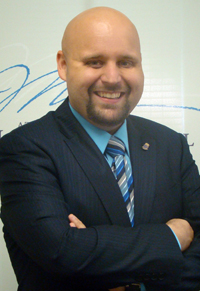
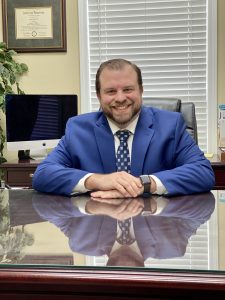






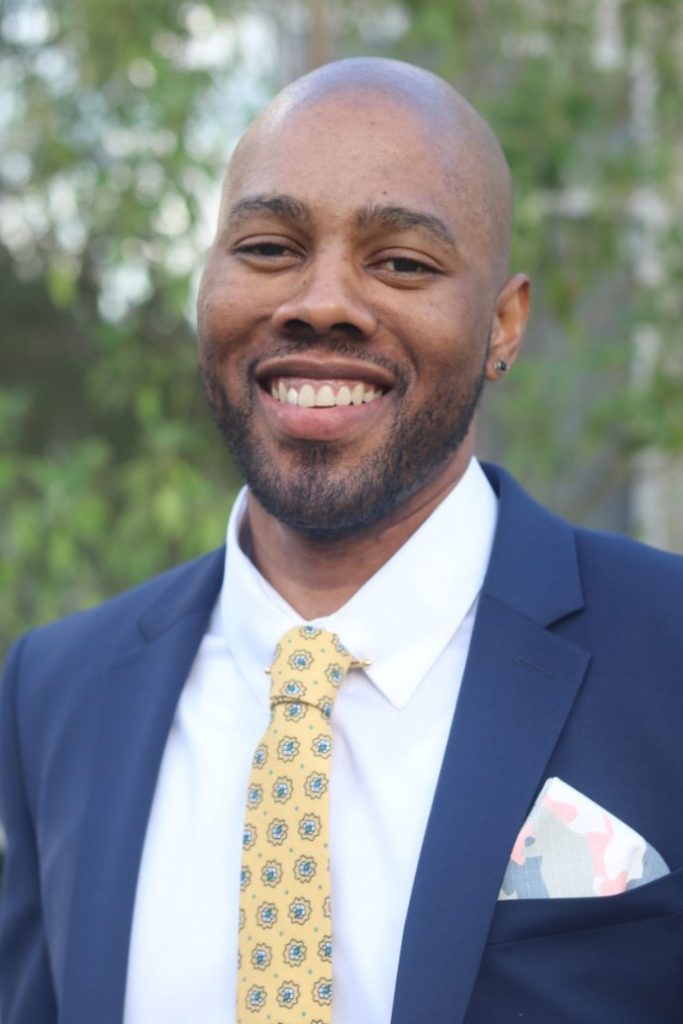

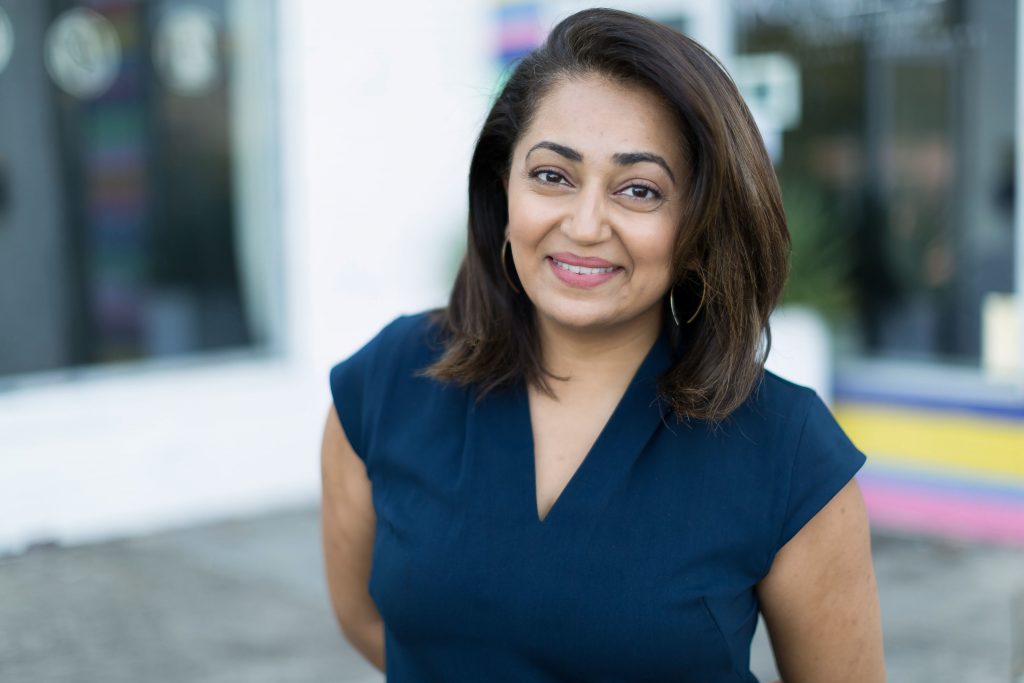
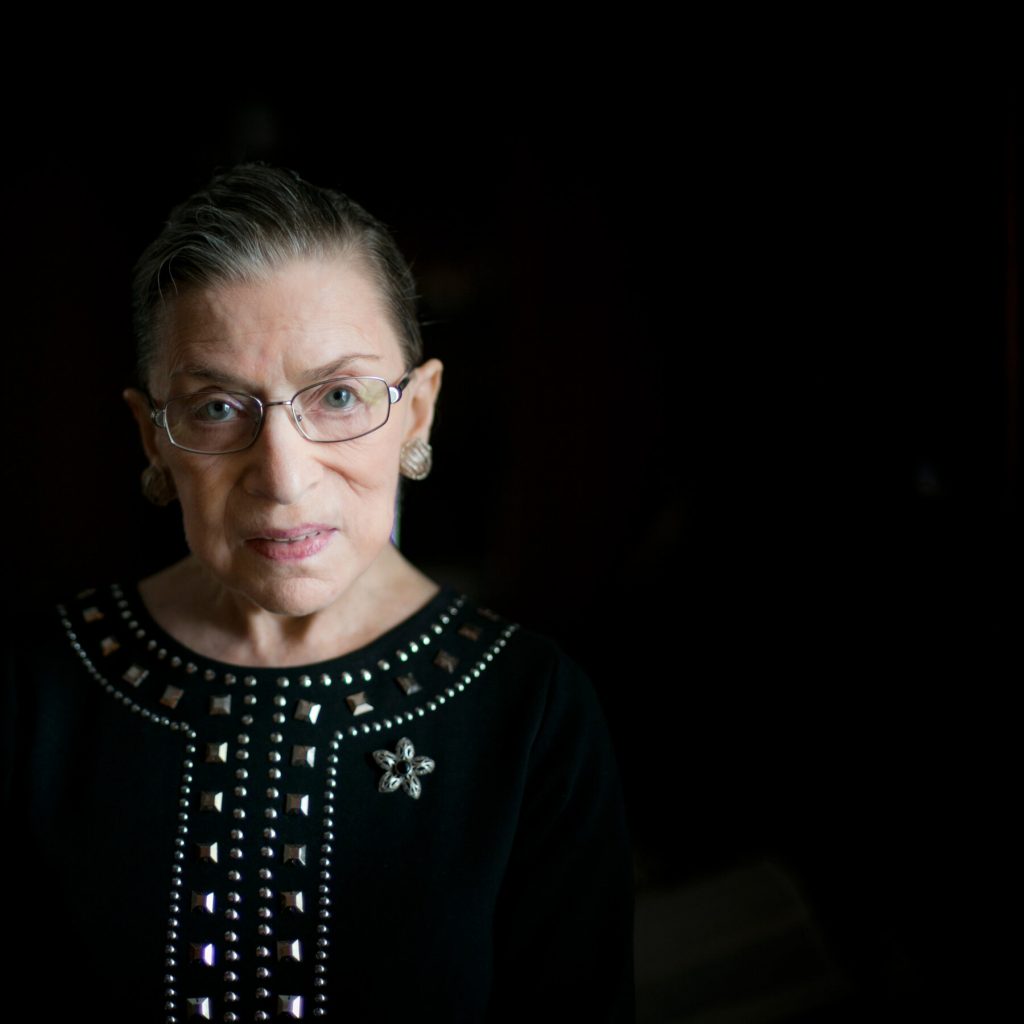


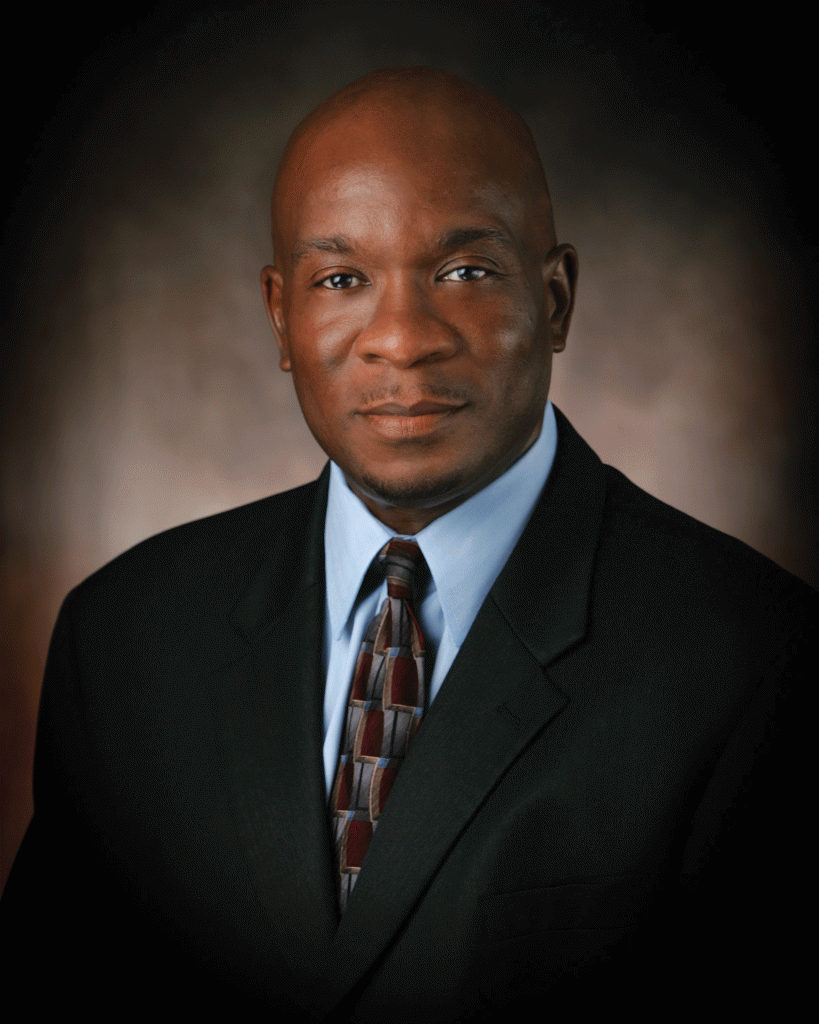
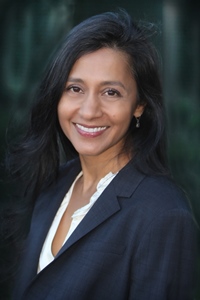
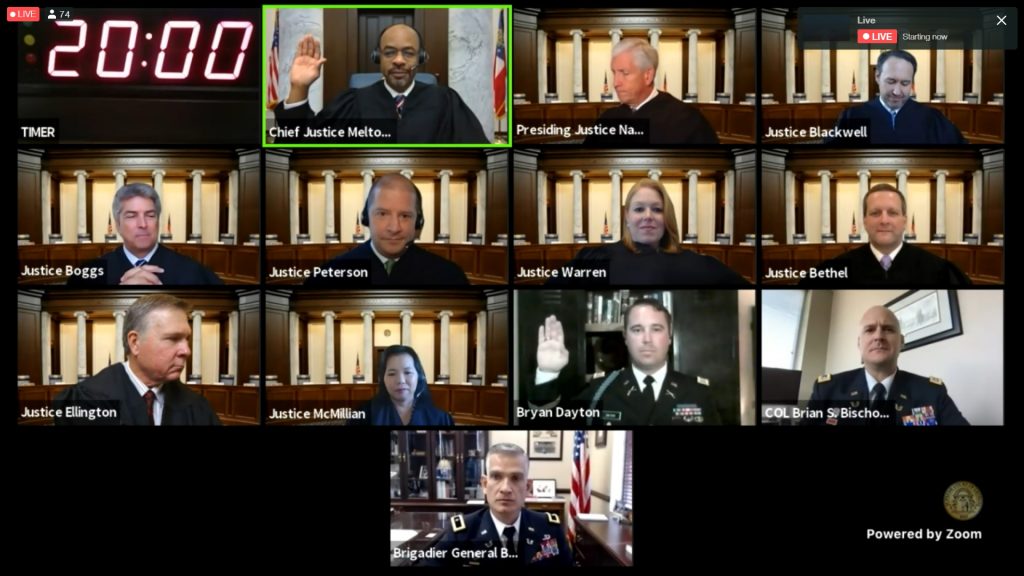
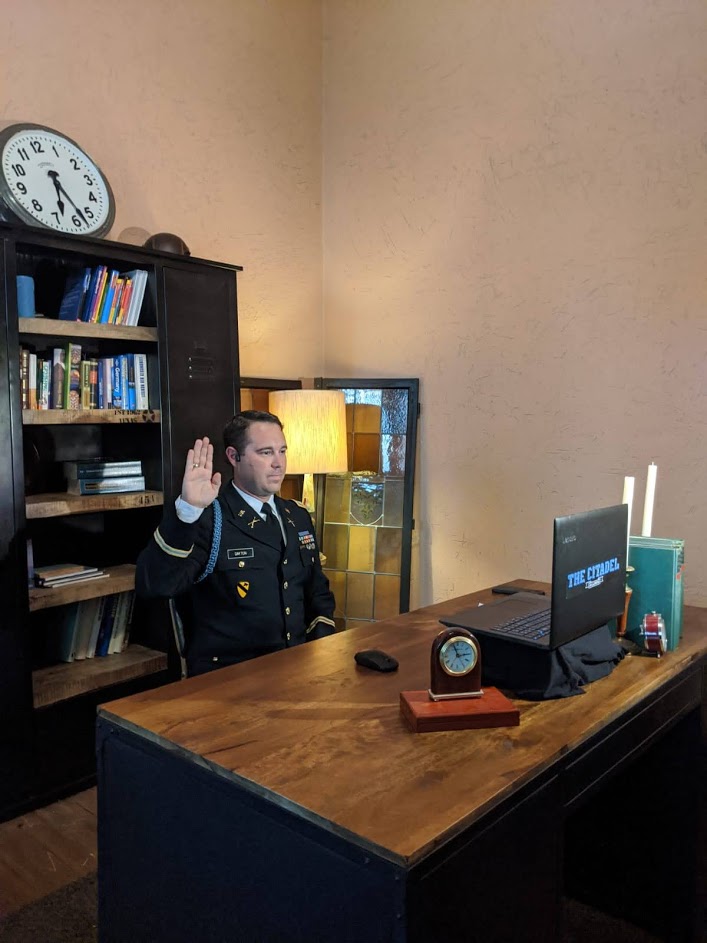
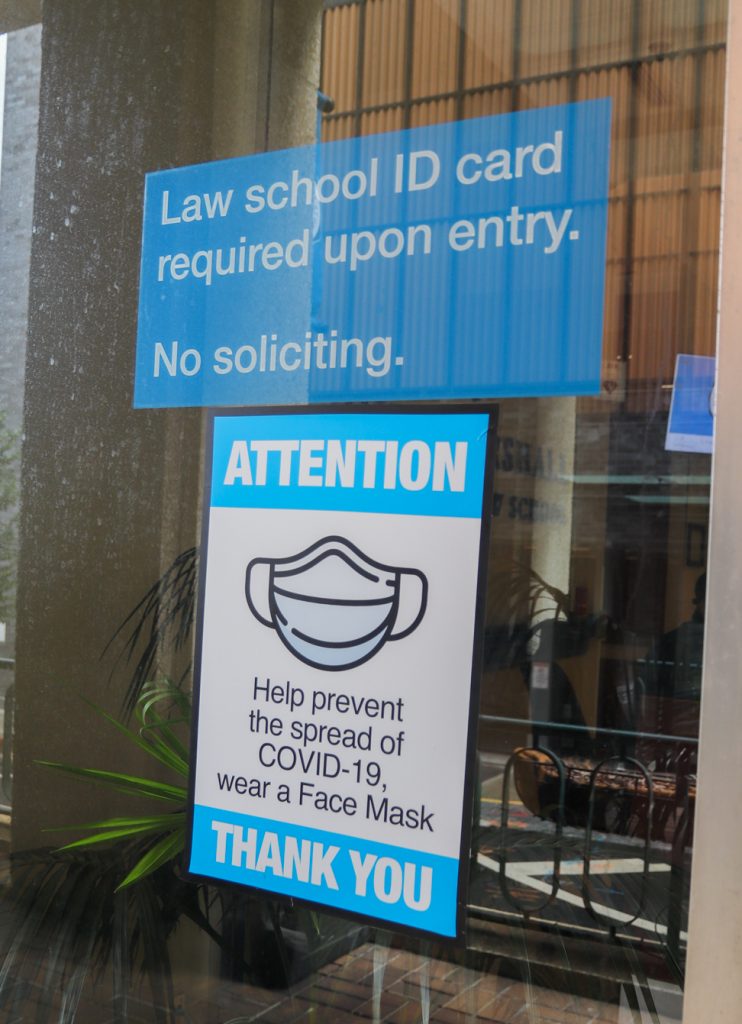
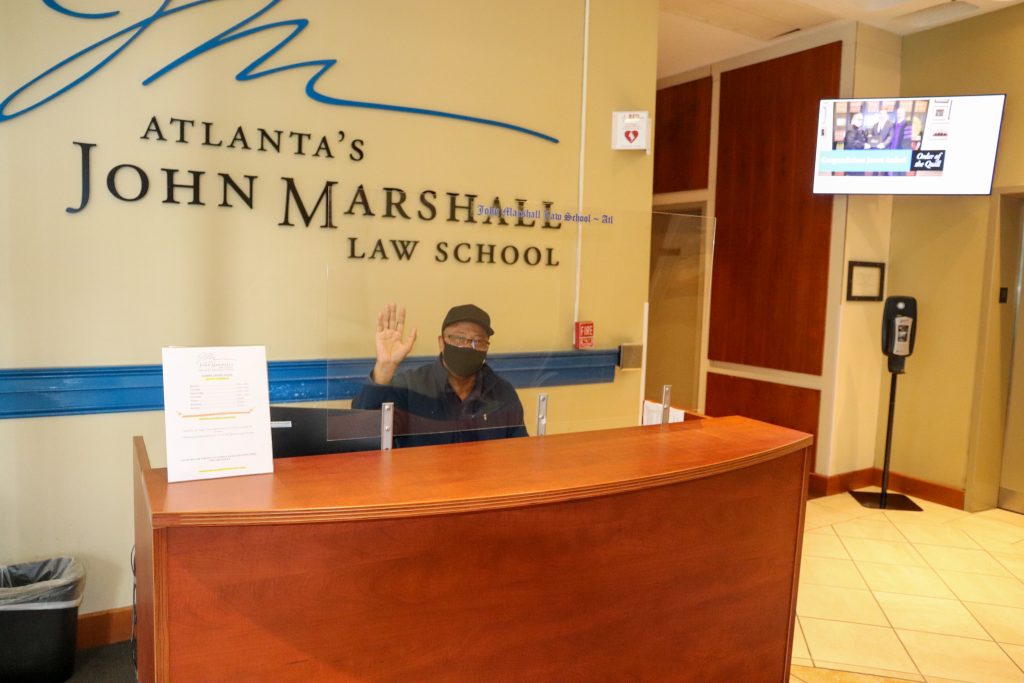
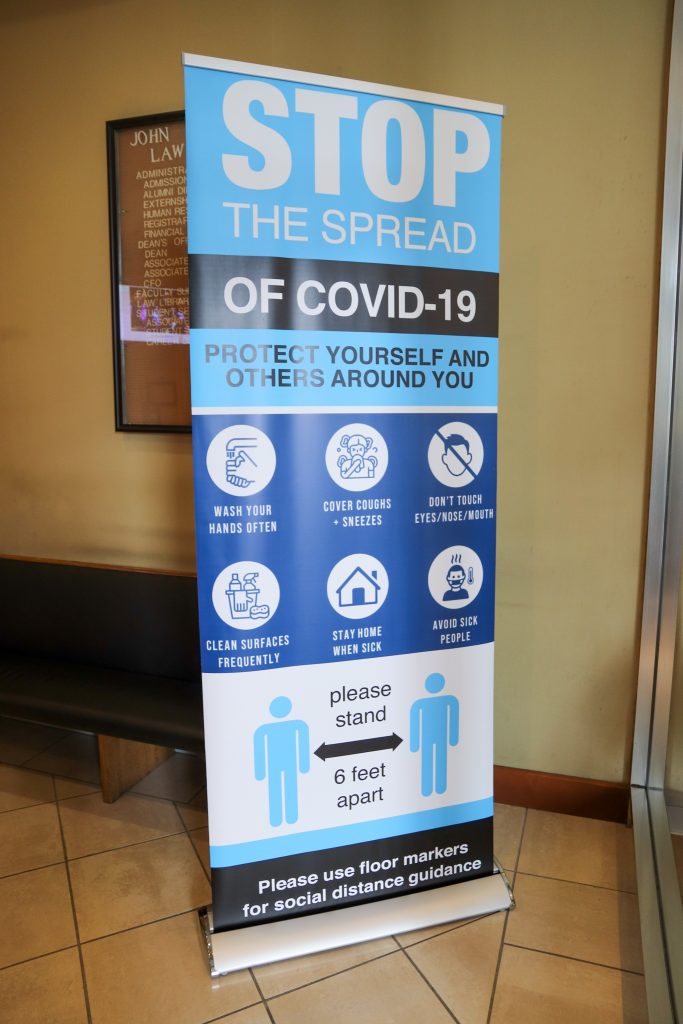
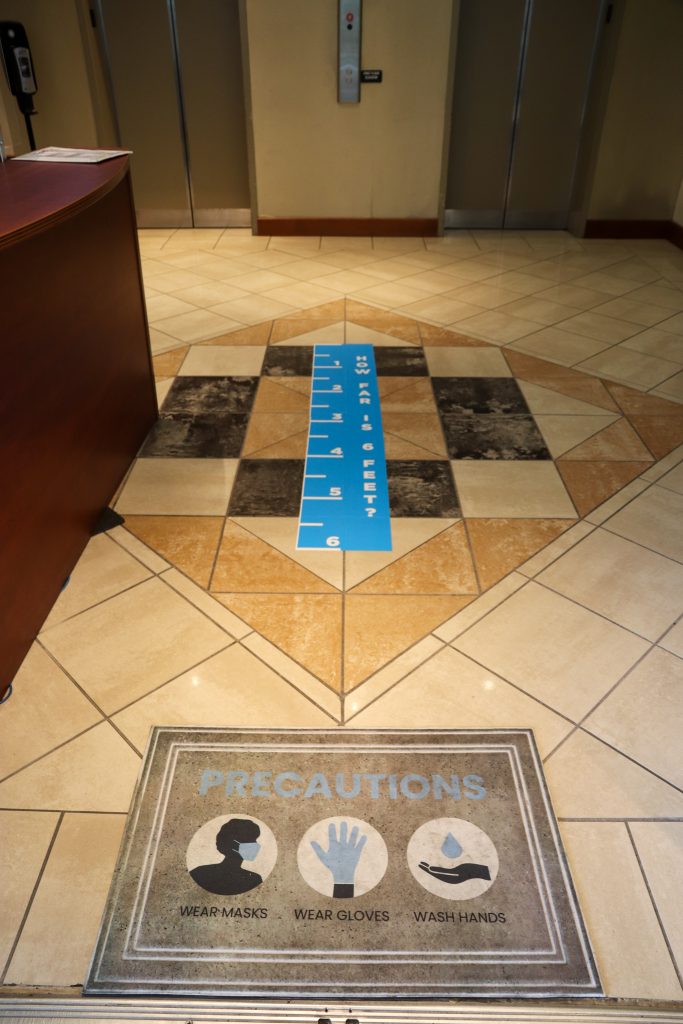
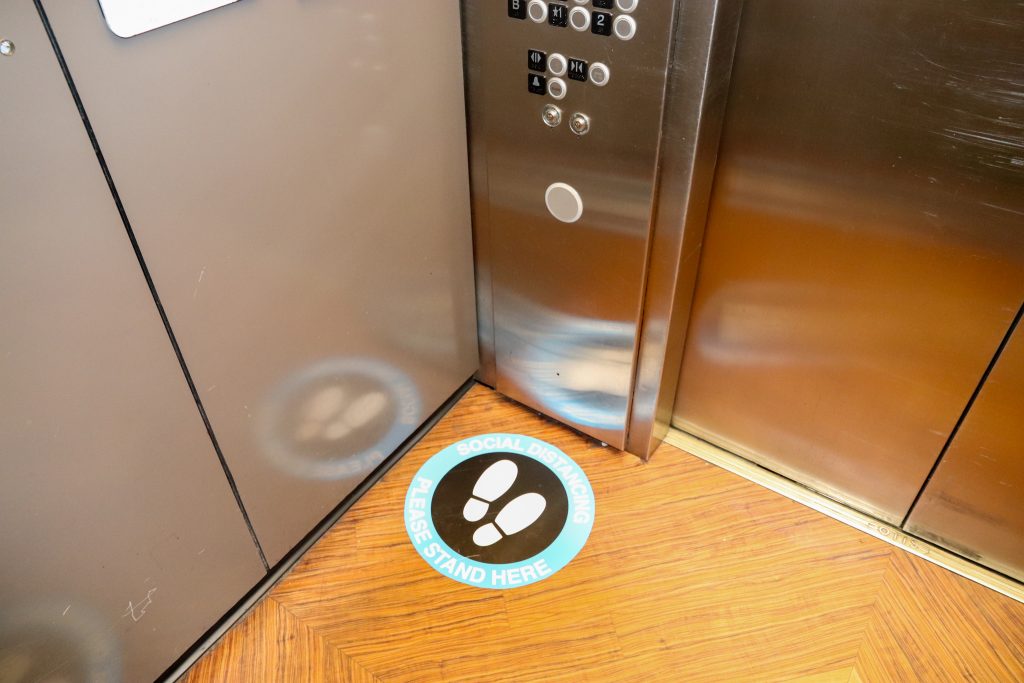
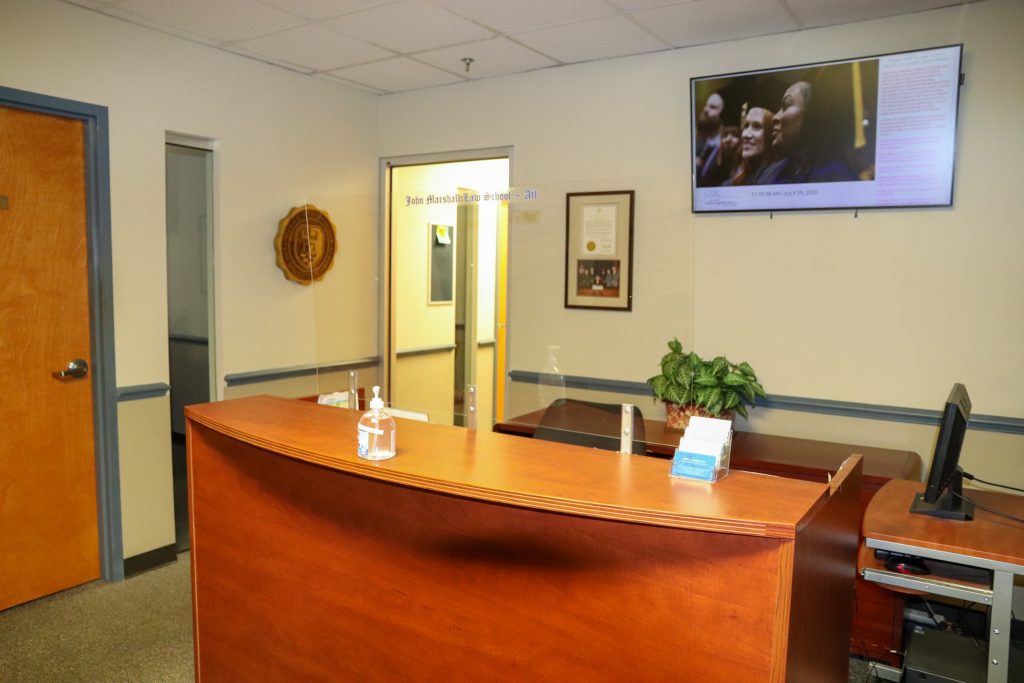
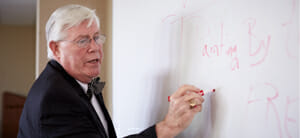
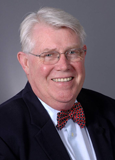
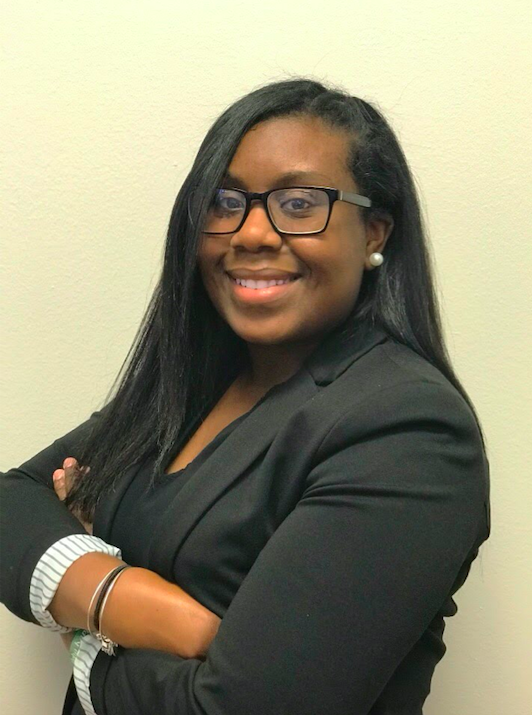
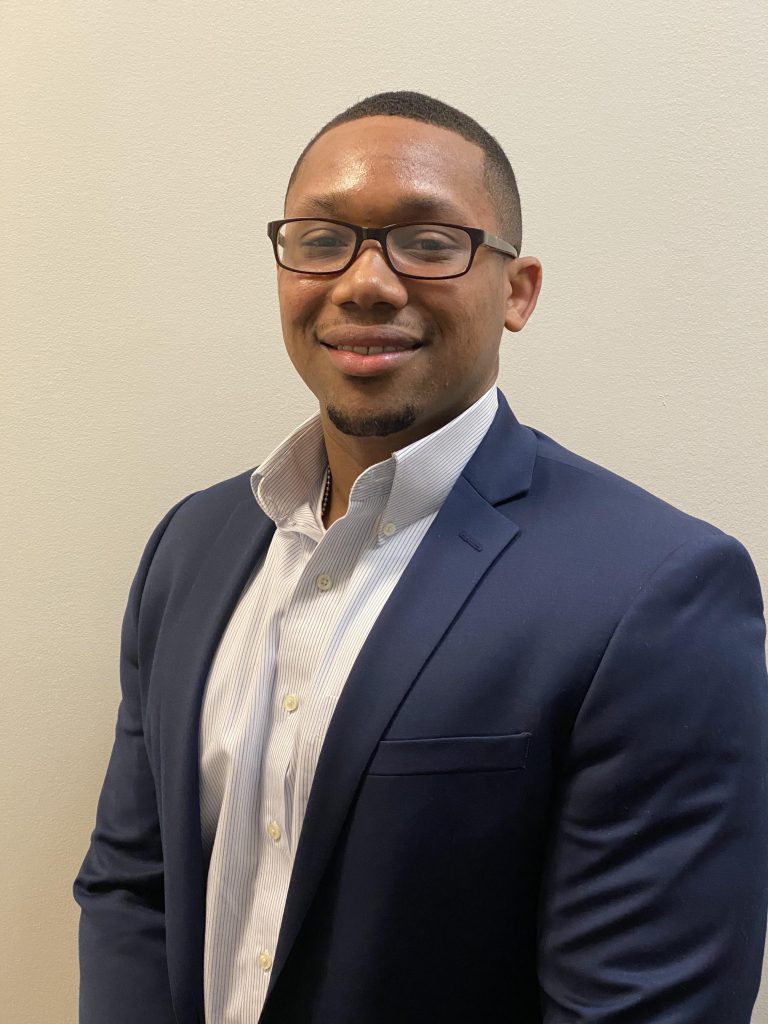
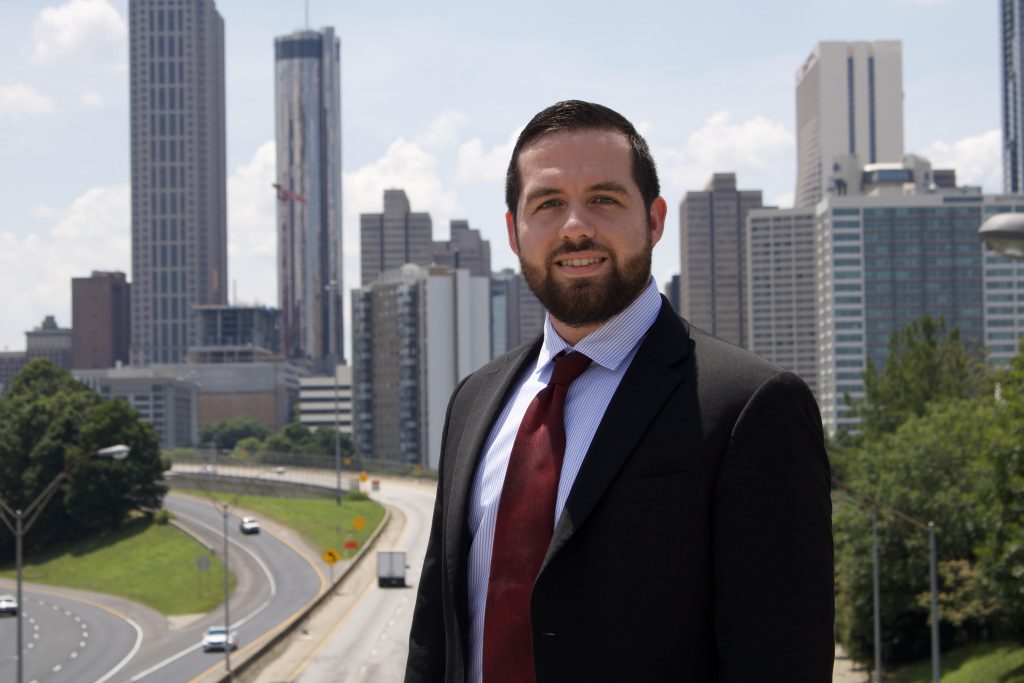
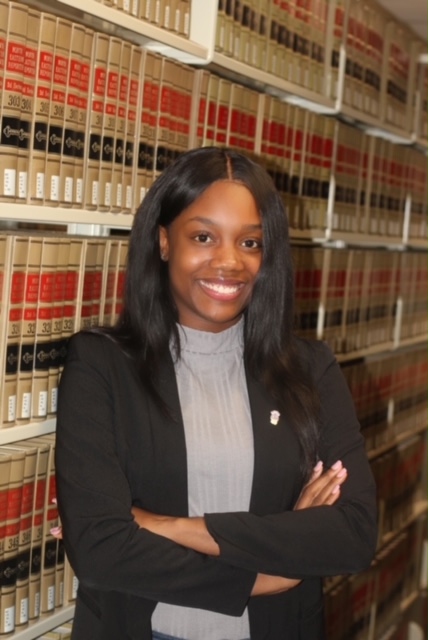
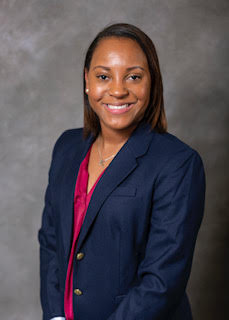
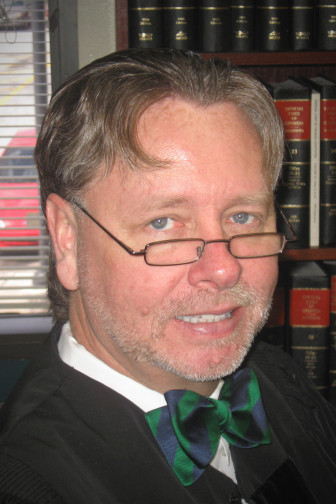
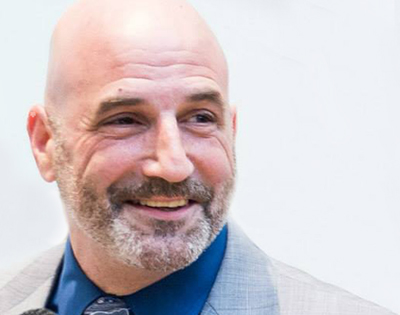
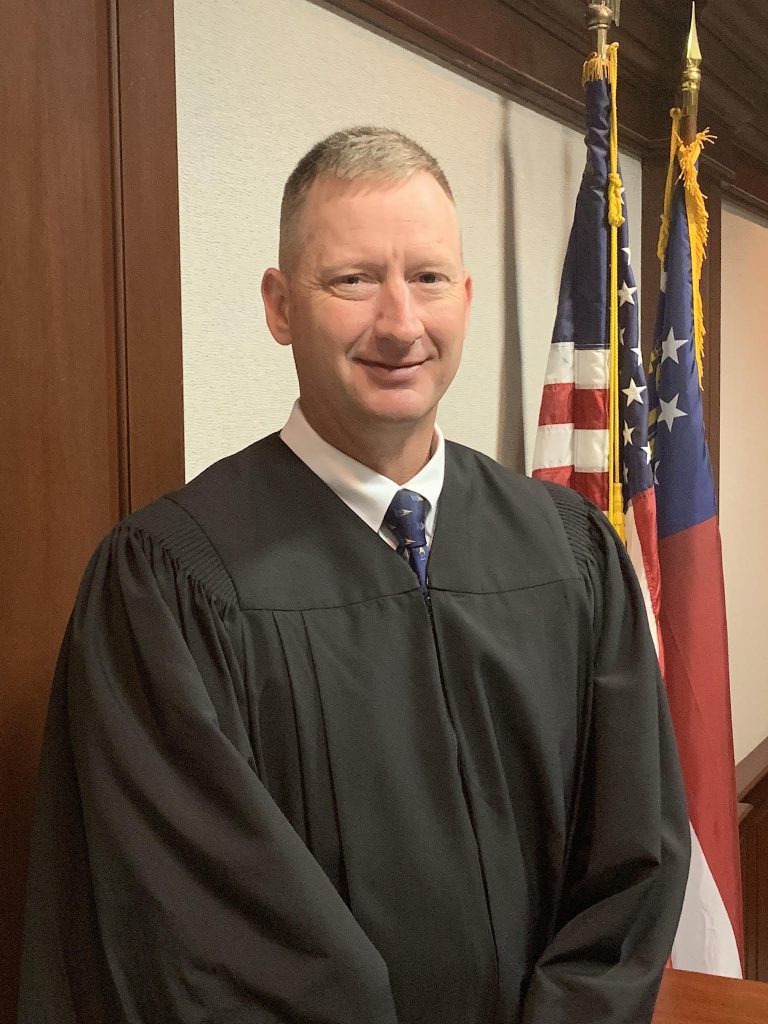
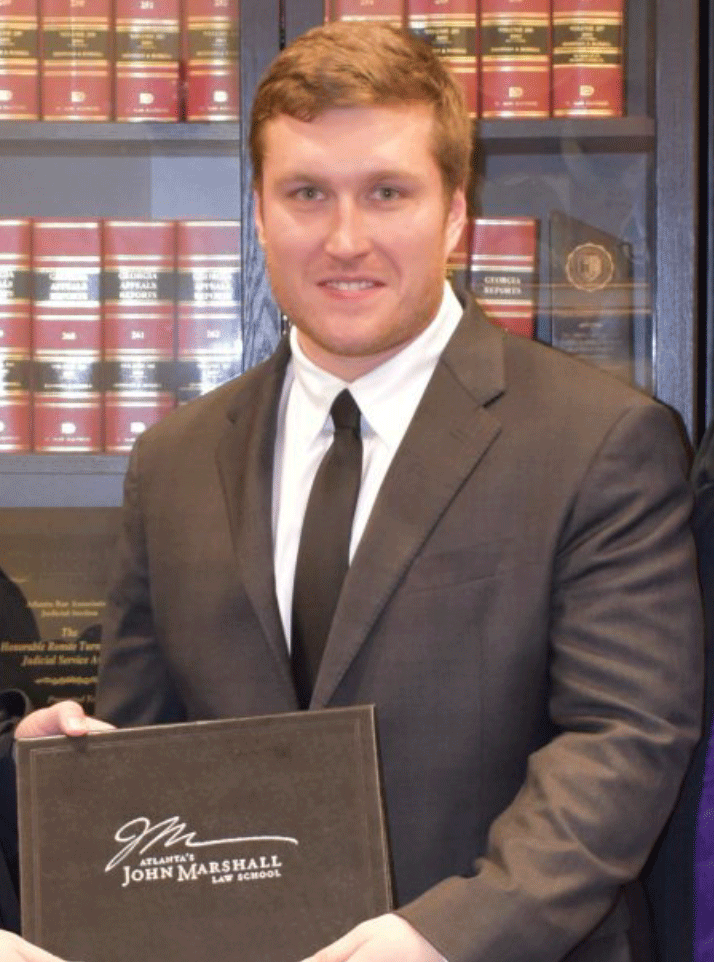
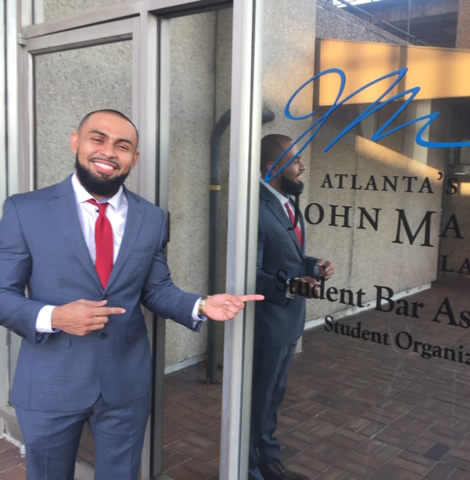



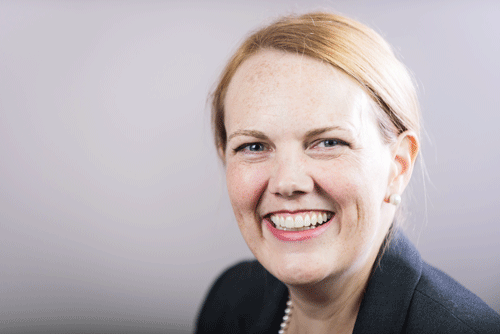
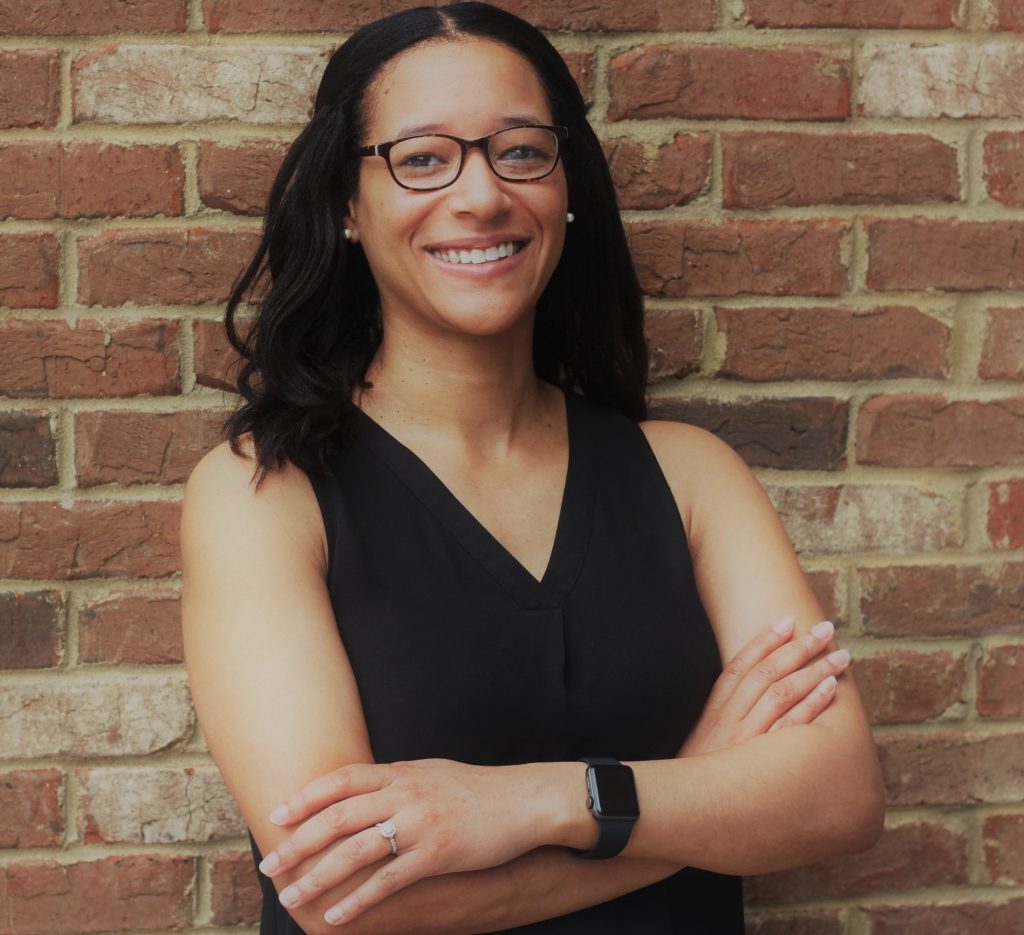
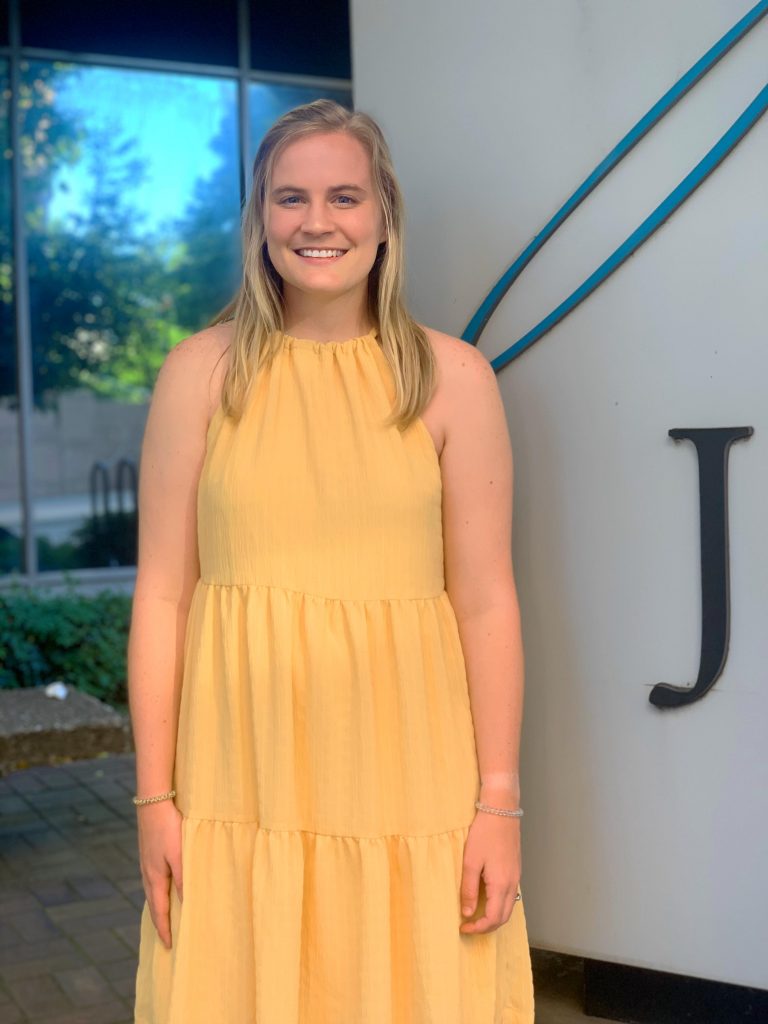


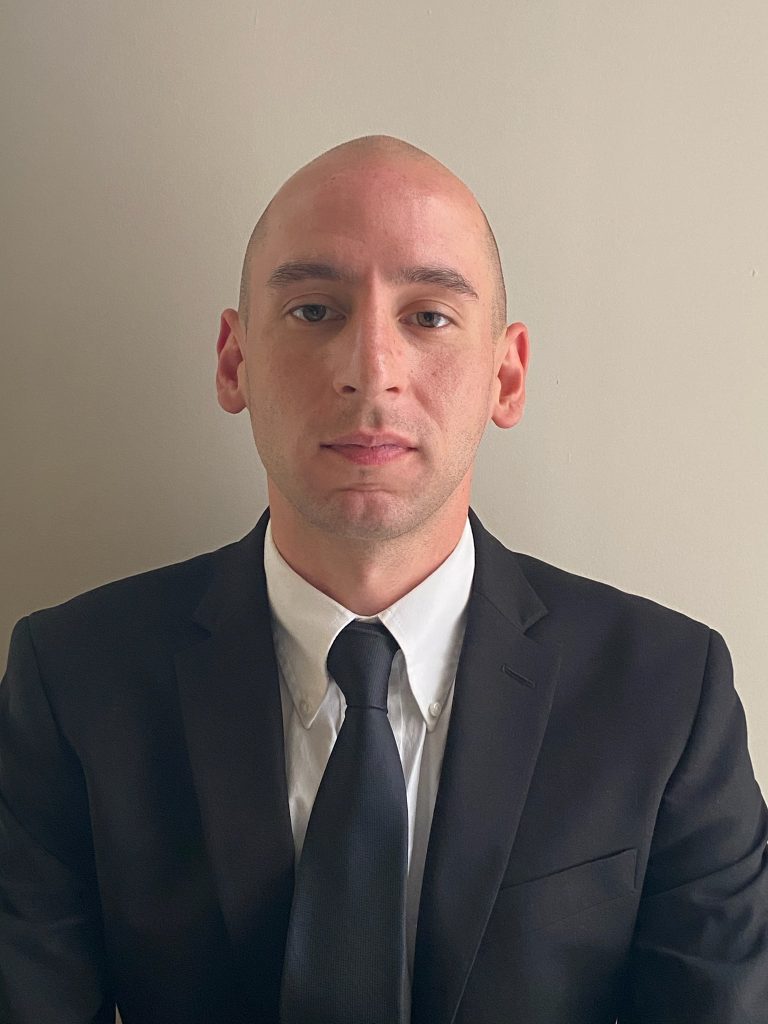
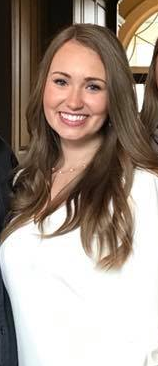
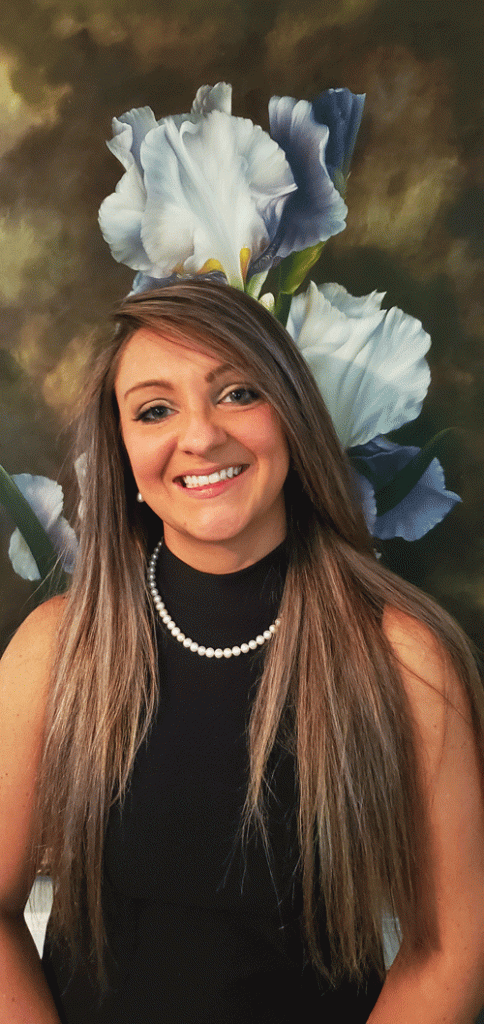
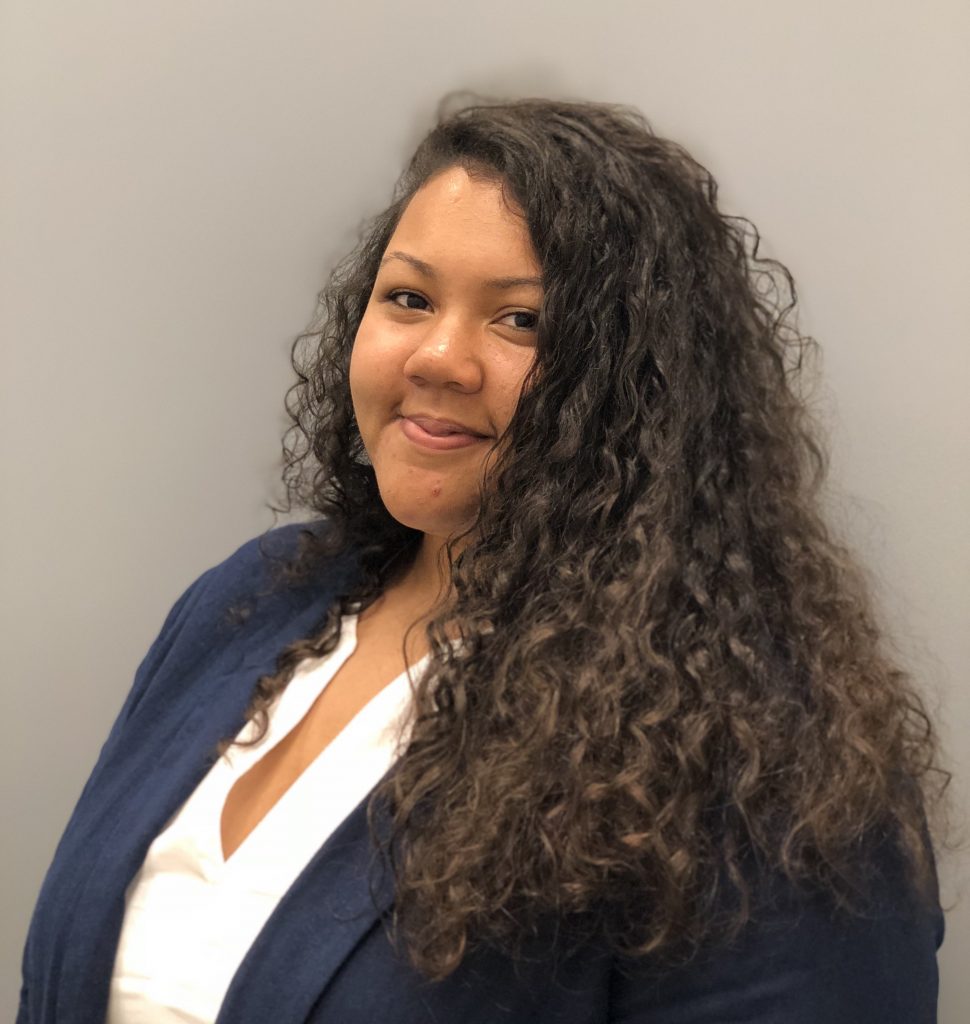
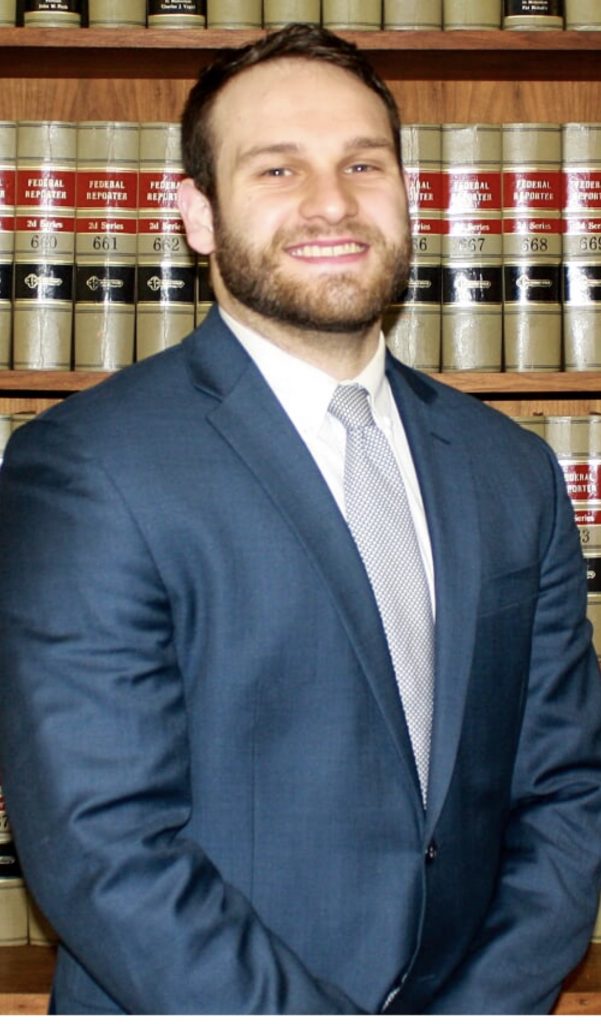
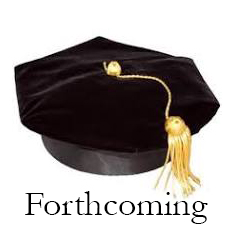

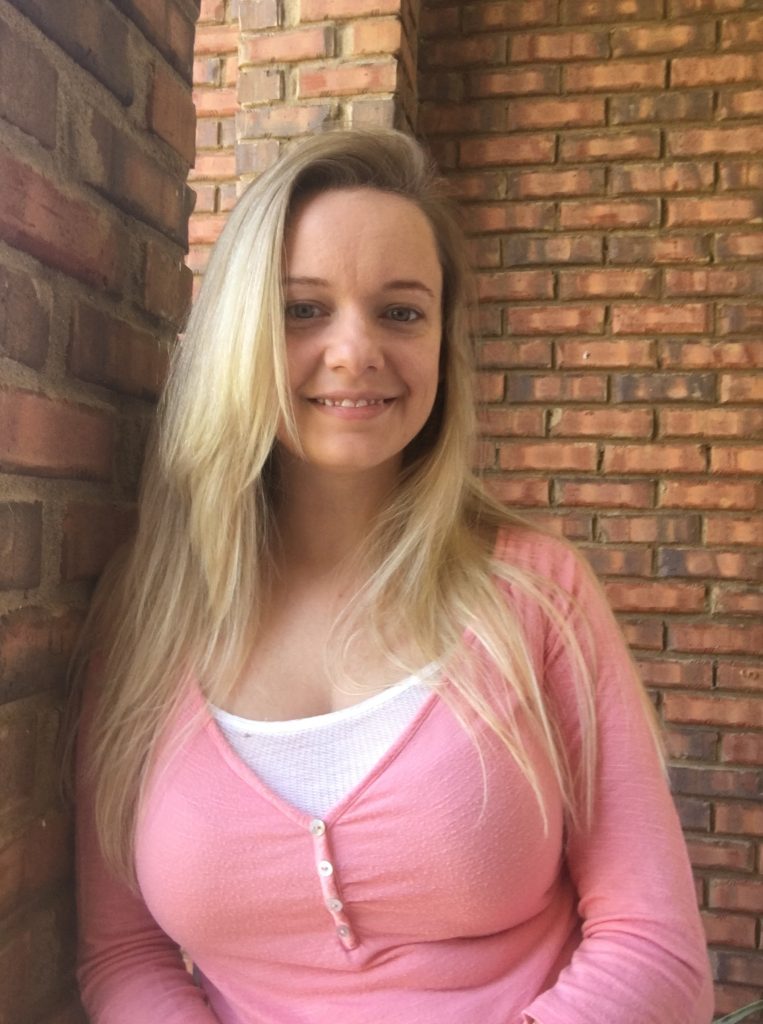
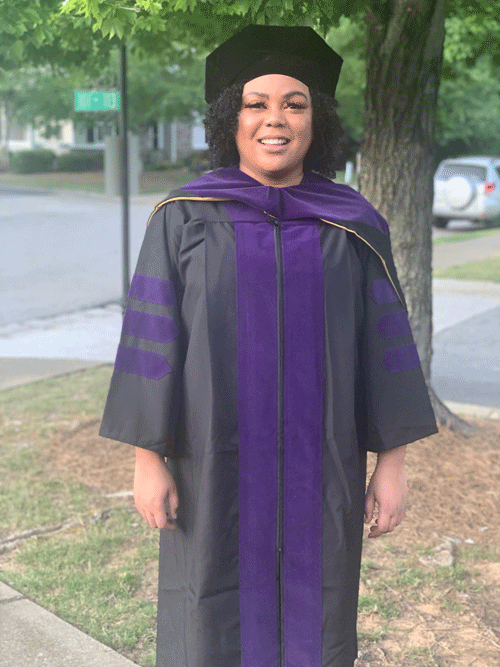
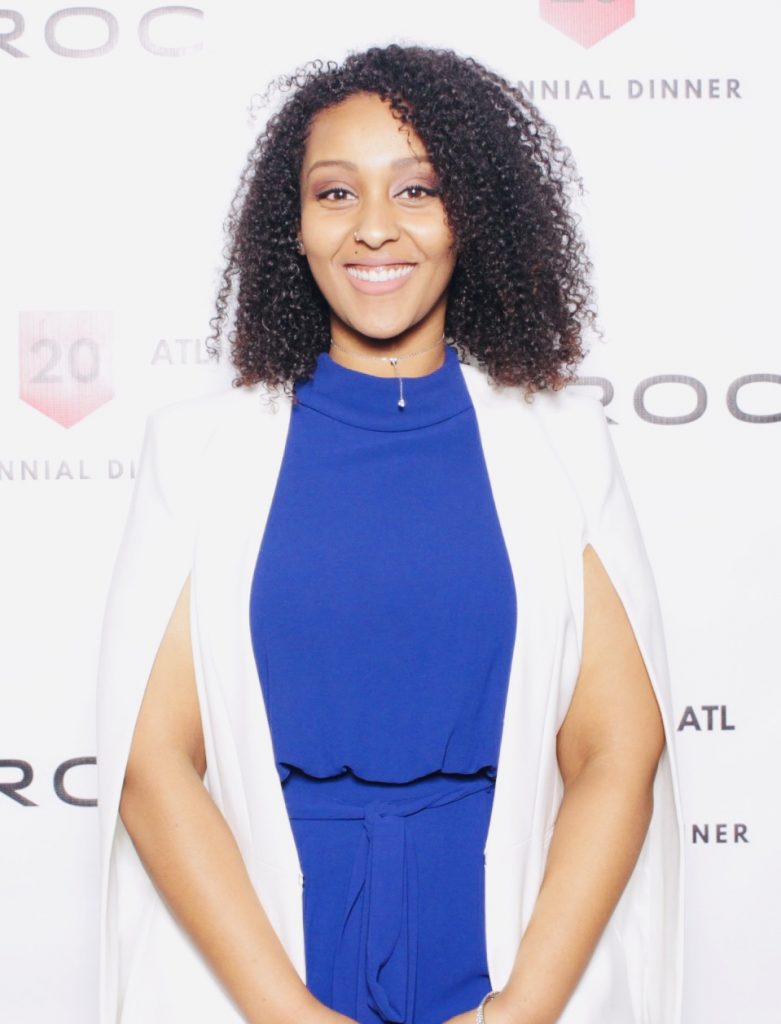
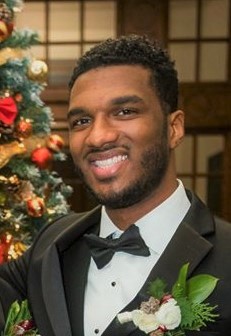
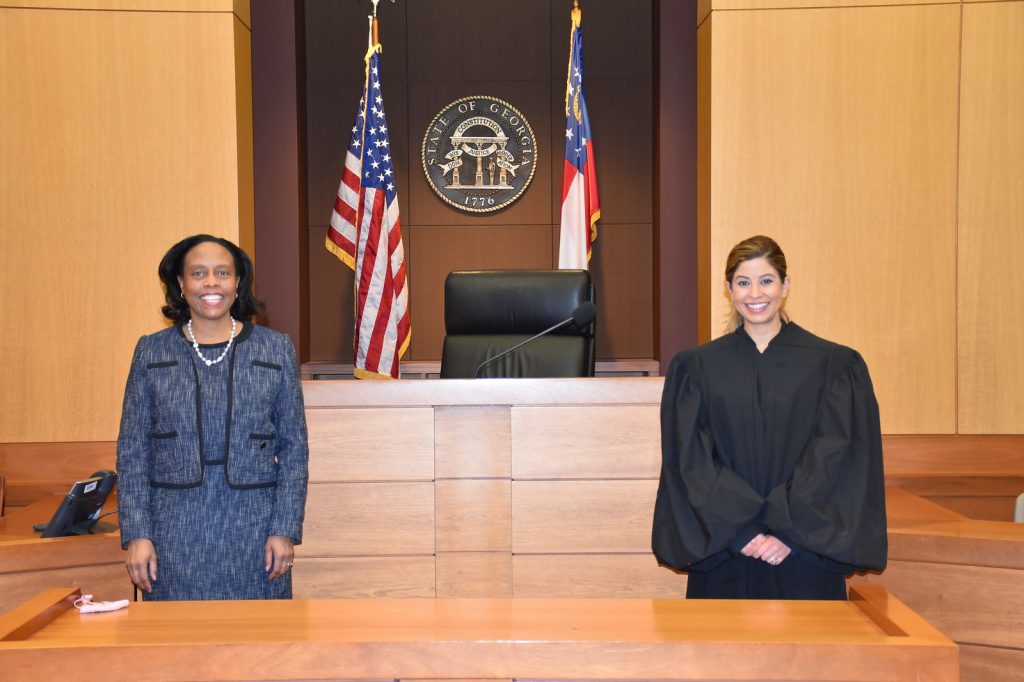
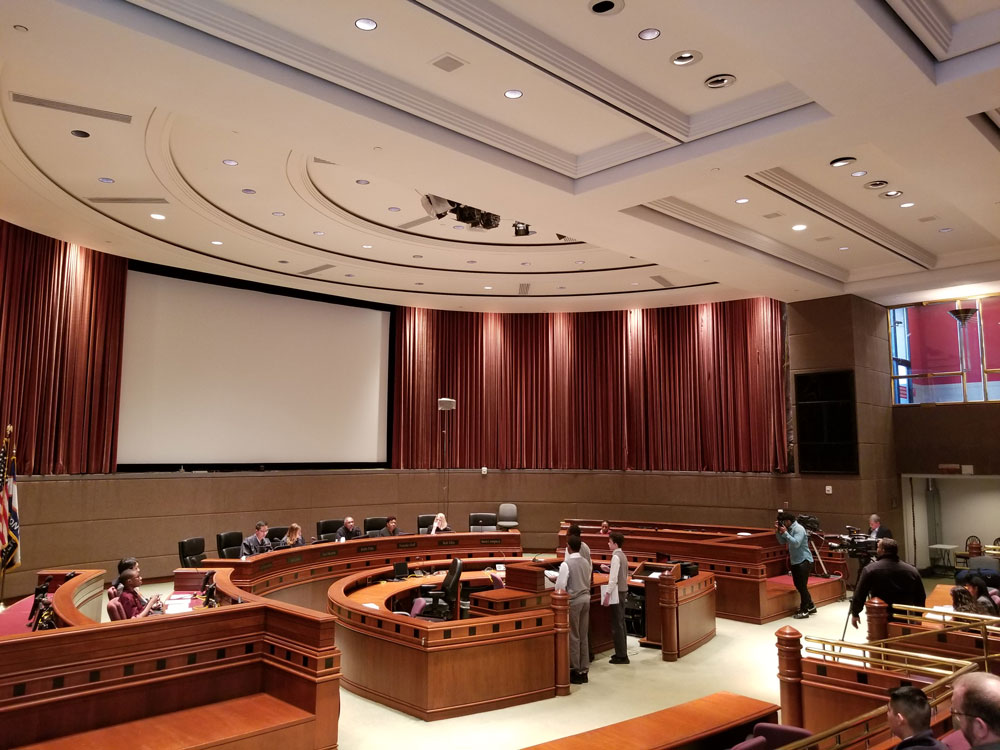
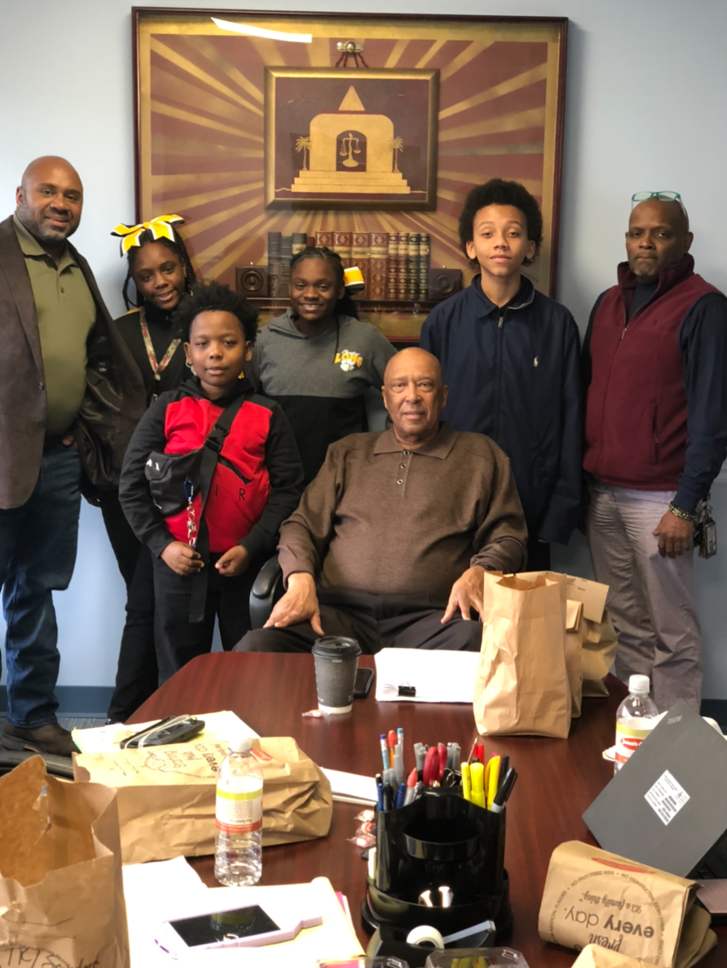
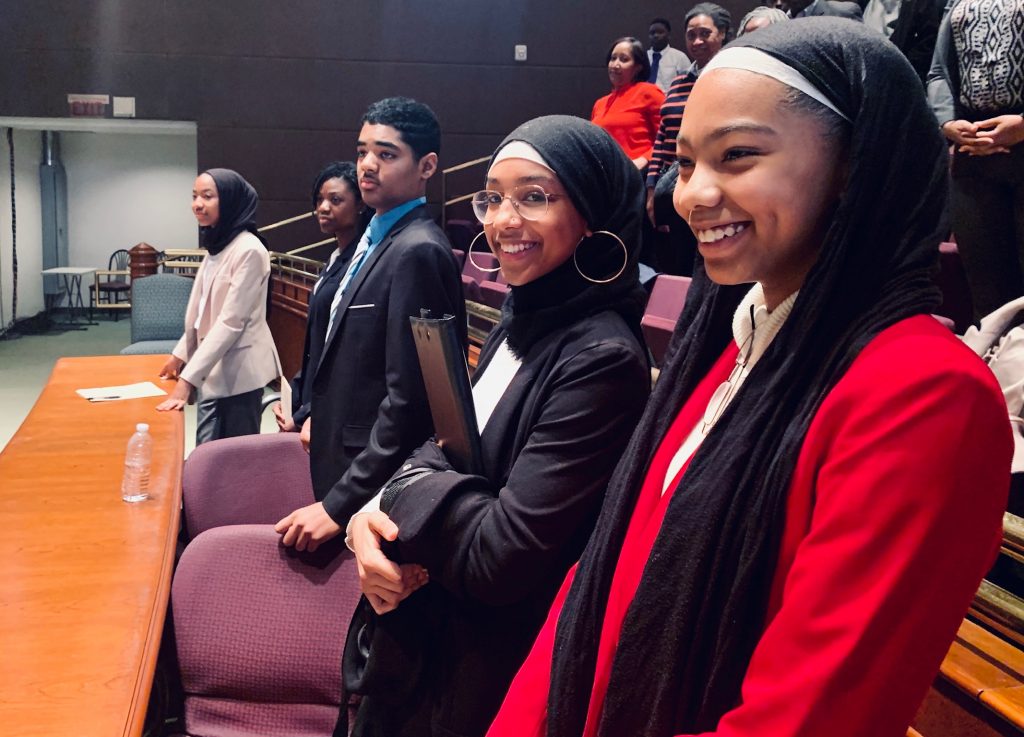
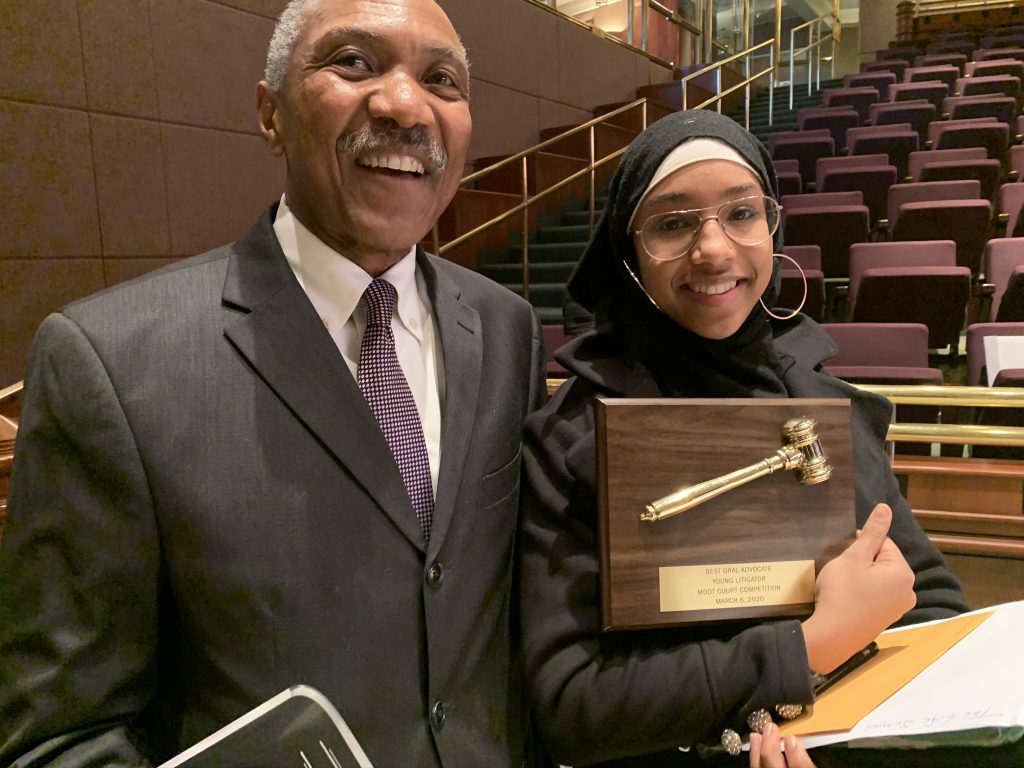
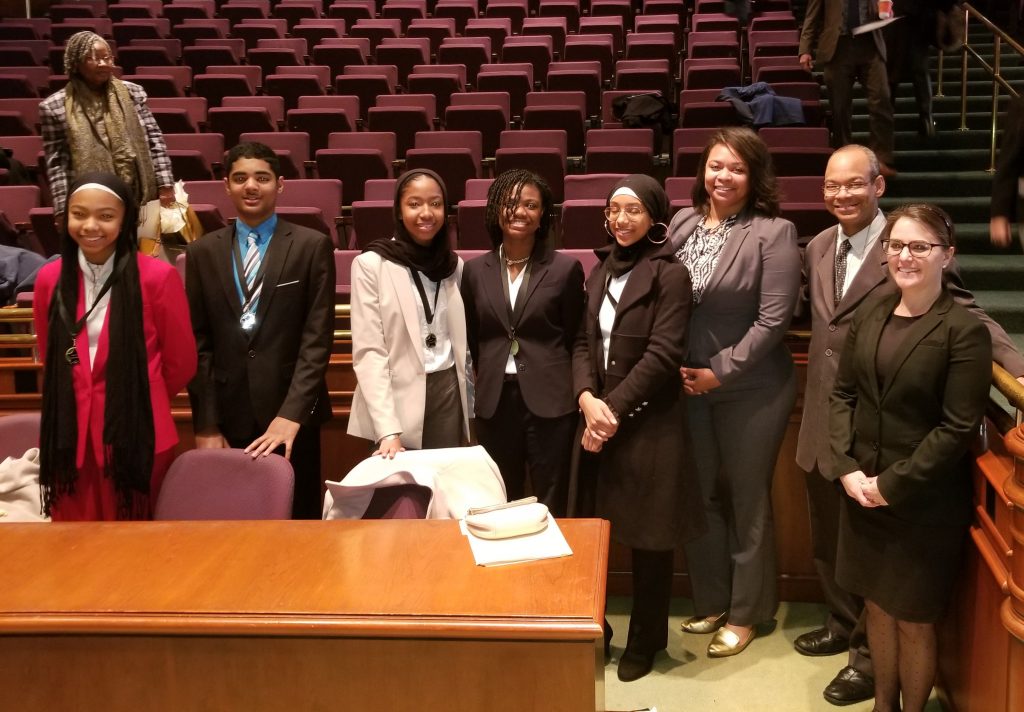
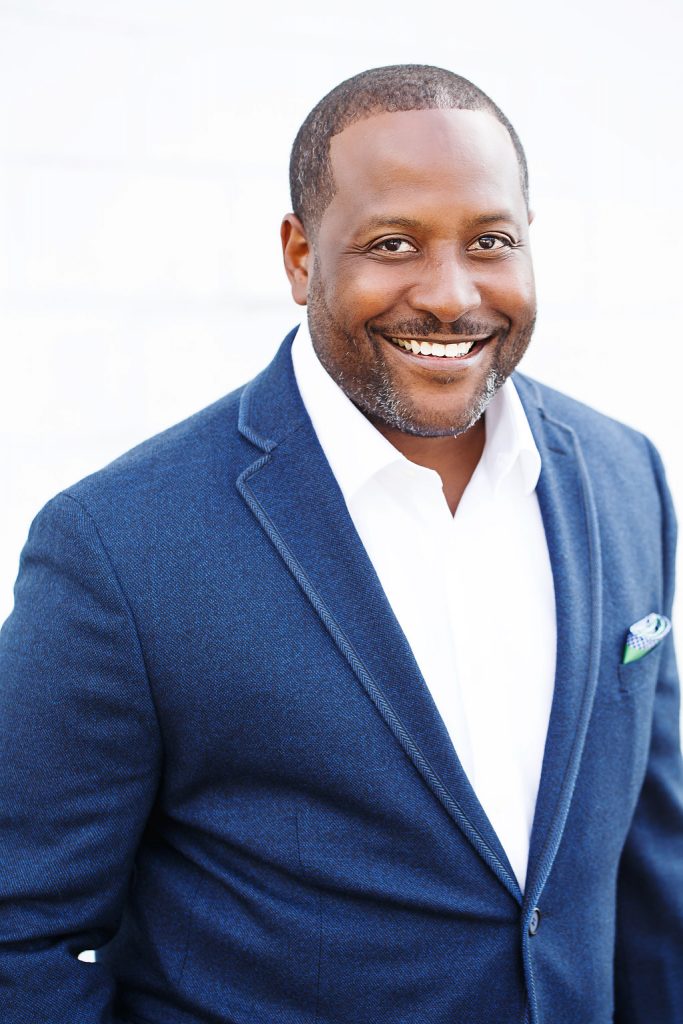
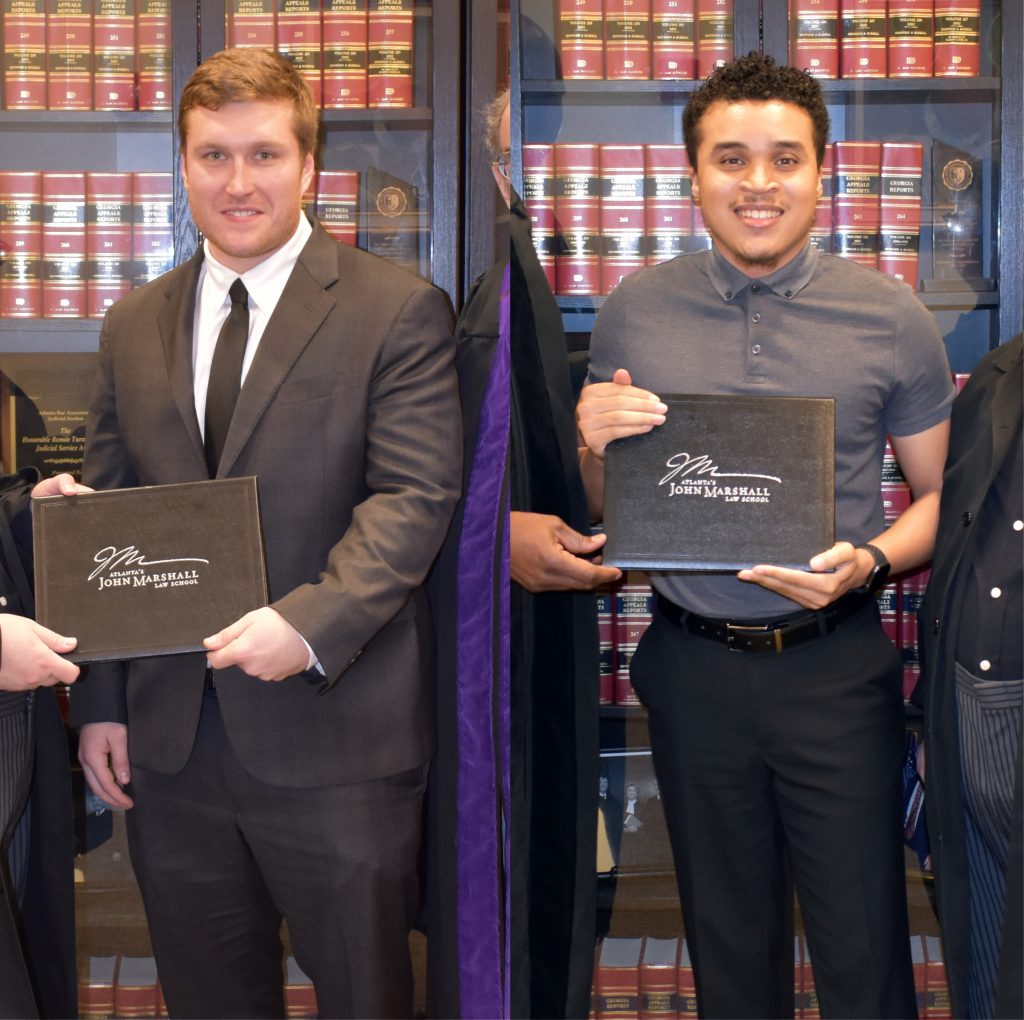
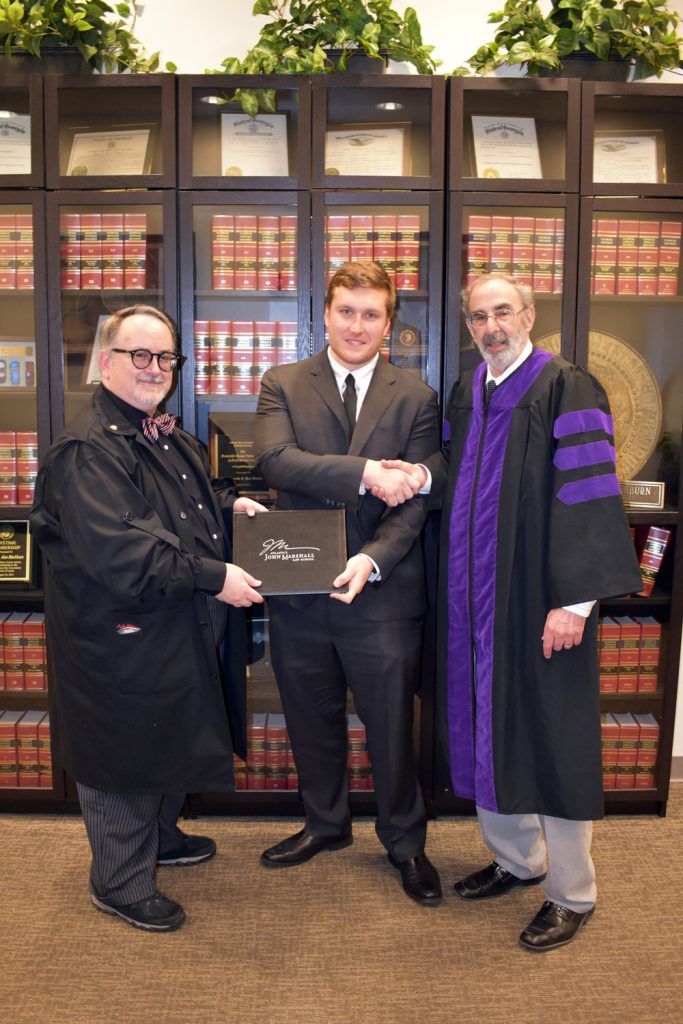
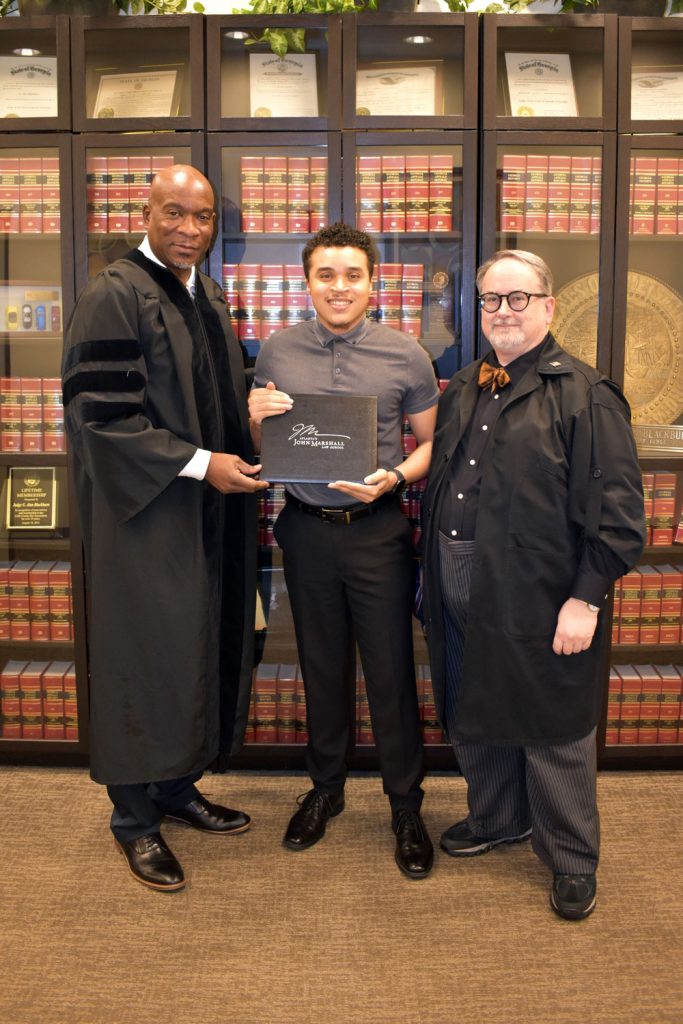
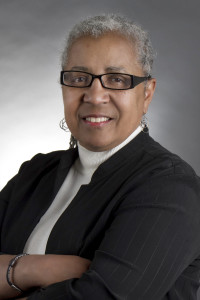
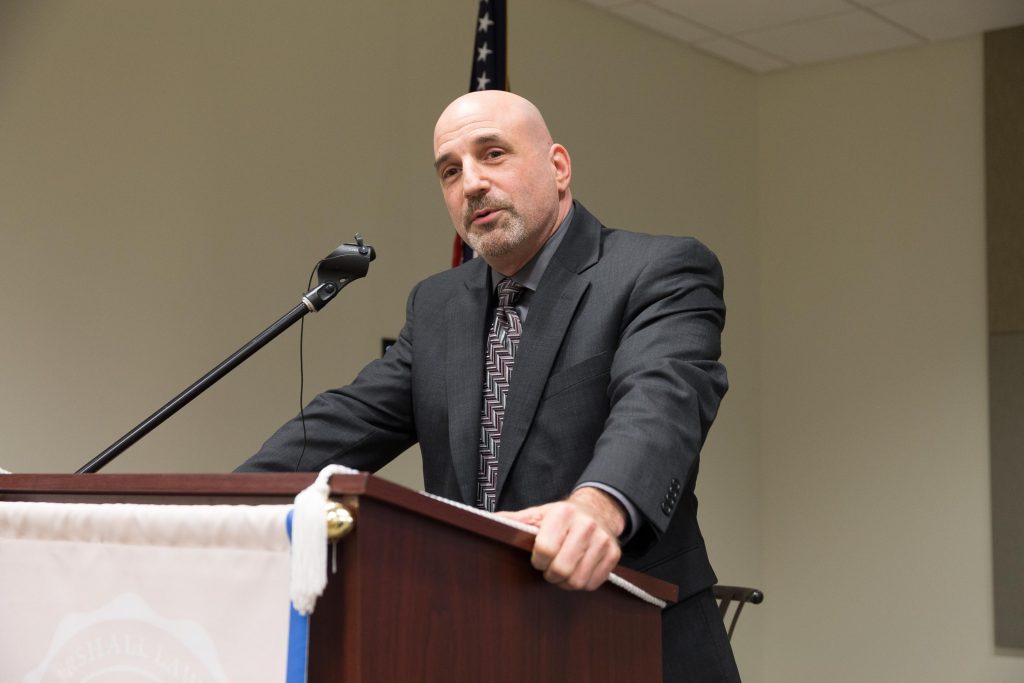
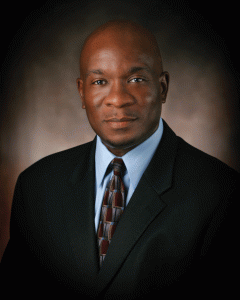 Atlanta’s John Marshall Law School (AJMLS) is pleased to announce the appointment of its 10th Dean, Jace C. Gatewood. Dean Gatewood succeeded Dean Malcolm L. Morris on January 1, 2020 as Interim Dean and CEO, becoming the first African American to serve in the role since the school’s founding in 1933.
Atlanta’s John Marshall Law School (AJMLS) is pleased to announce the appointment of its 10th Dean, Jace C. Gatewood. Dean Gatewood succeeded Dean Malcolm L. Morris on January 1, 2020 as Interim Dean and CEO, becoming the first African American to serve in the role since the school’s founding in 1933.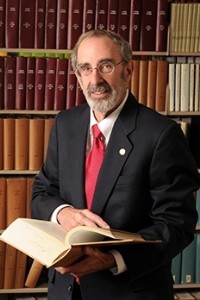
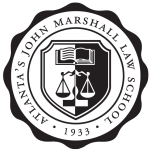 Atlanta’s John Marshall Law School is pleased to announce that the Council of the Section of Legal Education and Admissions to the Bar of the American Bar Association at its recent meeting found that the Law School demonstrated full compliance with the ABA Standards. The Law School has continuously been an approved ABA law school since 2009. The Law School recently took specific measures to ensure its compliance with the ABA Standards while continuing to meet its mission, viz., providing legal education opportunities to both traditional and non-traditional students.
Atlanta’s John Marshall Law School is pleased to announce that the Council of the Section of Legal Education and Admissions to the Bar of the American Bar Association at its recent meeting found that the Law School demonstrated full compliance with the ABA Standards. The Law School has continuously been an approved ABA law school since 2009. The Law School recently took specific measures to ensure its compliance with the ABA Standards while continuing to meet its mission, viz., providing legal education opportunities to both traditional and non-traditional students.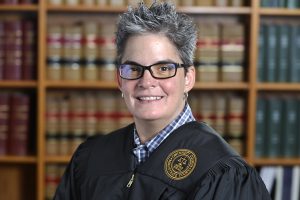 Atlanta’s John Marshall Law School (AJMLS) congratulates 1996 alumna, Angela Duncan, on her recent appointment as the 11th Superior Court Judge for Gwinnett County. Gwinnett County is Georgia’s second largest county and this position was created by Governor Brian Kemp to assist in the increasing caseload. It is speculated that Duncan will be Gwinnett’s first openly gay Superior Court judge as she joins a handful of other officials who are members of the LGBTQ community and hold high profile positions in the county.
Atlanta’s John Marshall Law School (AJMLS) congratulates 1996 alumna, Angela Duncan, on her recent appointment as the 11th Superior Court Judge for Gwinnett County. Gwinnett County is Georgia’s second largest county and this position was created by Governor Brian Kemp to assist in the increasing caseload. It is speculated that Duncan will be Gwinnett’s first openly gay Superior Court judge as she joins a handful of other officials who are members of the LGBTQ community and hold high profile positions in the county.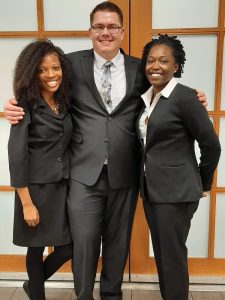
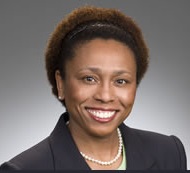 Atlanta’s John Marshall Law School (AJMLS) congratulates 1996 alumna, Tasha M. Mosley, on her recent appointment as District Attorney of the Clayton County Judicial Circuit.
Atlanta’s John Marshall Law School (AJMLS) congratulates 1996 alumna, Tasha M. Mosley, on her recent appointment as District Attorney of the Clayton County Judicial Circuit.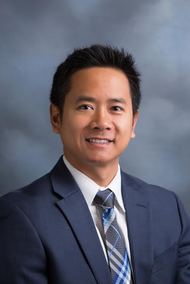 Atlanta’s John Marshall Law School (AJMLS) congratulates Judge Ethan Pham, Class of 2013, for his recent honor of being named one of Georgia Trend’s 40 Under 40. The 40 individuals were selected by the Georgia Trend staff from more than 400 nominations by readers throughout the state. Judge Pham is a Partner at the Law Firm of Nguyen & Pham LLC and an Associate Judge for the City of Norcross and City of Morrow.
Atlanta’s John Marshall Law School (AJMLS) congratulates Judge Ethan Pham, Class of 2013, for his recent honor of being named one of Georgia Trend’s 40 Under 40. The 40 individuals were selected by the Georgia Trend staff from more than 400 nominations by readers throughout the state. Judge Pham is a Partner at the Law Firm of Nguyen & Pham LLC and an Associate Judge for the City of Norcross and City of Morrow. Atlanta’s John Marshall Law School (AJMLS) alumnus, Nick Schnyder, has only hired passionate legal minds from his alma mater since opening his firm, Nick Schnyder Law Firm, LLC, in August of 2016. Schnyder’s firm experienced rapid growth and turning to his fellow AJMLS alumni for support has enabled the firm to continue taking on difficult and rewarding cases.
Atlanta’s John Marshall Law School (AJMLS) alumnus, Nick Schnyder, has only hired passionate legal minds from his alma mater since opening his firm, Nick Schnyder Law Firm, LLC, in August of 2016. Schnyder’s firm experienced rapid growth and turning to his fellow AJMLS alumni for support has enabled the firm to continue taking on difficult and rewarding cases.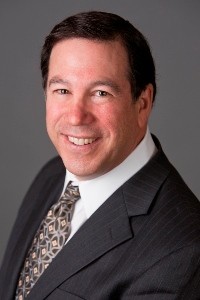 Atlanta’s John Marshall Law School Adjunct Professor, Jeffrey D. Diamond, was interviewed by WallHub as one of their insurance experts. The article goes in-depth about Georgia auto rates and insurers. Professor Diamond is a practicing litigation attorney who specializes in insurance law and related matters and teaches Insurance Law at Atlanta’s John Marshall Law School.
Atlanta’s John Marshall Law School Adjunct Professor, Jeffrey D. Diamond, was interviewed by WallHub as one of their insurance experts. The article goes in-depth about Georgia auto rates and insurers. Professor Diamond is a practicing litigation attorney who specializes in insurance law and related matters and teaches Insurance Law at Atlanta’s John Marshall Law School.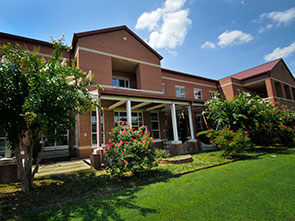 Few resources are available to provide free criminal legal services for homeless Veterans, despite the fact that legal services are often essential for removing barriers to obtaining or retaining permanent housing, receiving needed healthcare, income stability, and opening doors to employment. Atlanta’s John Marshall Law School (AJMLS), in partnership with the
Few resources are available to provide free criminal legal services for homeless Veterans, despite the fact that legal services are often essential for removing barriers to obtaining or retaining permanent housing, receiving needed healthcare, income stability, and opening doors to employment. Atlanta’s John Marshall Law School (AJMLS), in partnership with the 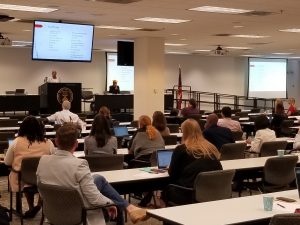 Several years ago, Georgia law schools formed GALE, the Georgia Association of Legal Externships. GALE has worked hard to standardize policies and practices for the supervision of externs in their field placements. Every year, the Georgia Association of Legal Externships hosts an annual Supervising Attorney training designed to help externship supervisors and their organization get the most out of working with law students. This year’s supervisor training was held at the Georgia State Bar on August 7, 2019. Assistant Dean of Experiential Learning, Dr. Bridgett E. Ortega facilitated a session on navigating cultural difference that was warmly received by the 75 plus attorneys in attendance.
Several years ago, Georgia law schools formed GALE, the Georgia Association of Legal Externships. GALE has worked hard to standardize policies and practices for the supervision of externs in their field placements. Every year, the Georgia Association of Legal Externships hosts an annual Supervising Attorney training designed to help externship supervisors and their organization get the most out of working with law students. This year’s supervisor training was held at the Georgia State Bar on August 7, 2019. Assistant Dean of Experiential Learning, Dr. Bridgett E. Ortega facilitated a session on navigating cultural difference that was warmly received by the 75 plus attorneys in attendance.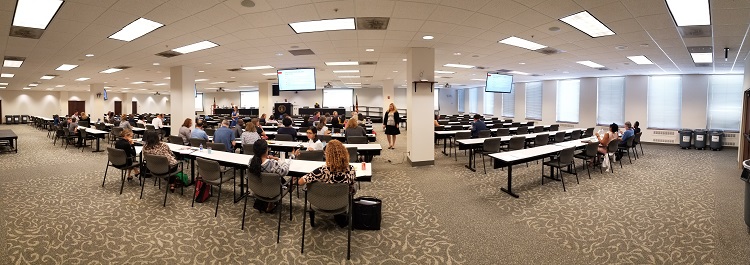
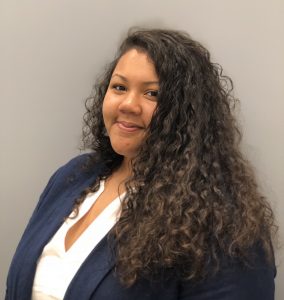
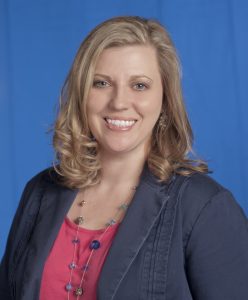
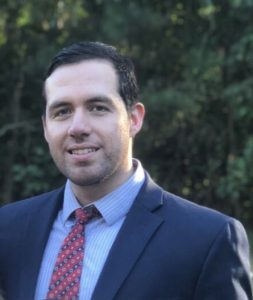
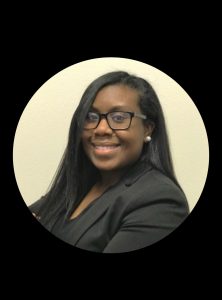 Where were you raised: I was born and raised in Macon, Georgia.
Where were you raised: I was born and raised in Macon, Georgia.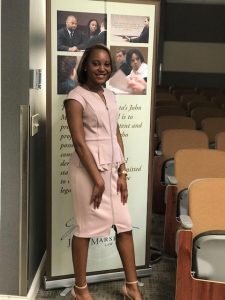 Where were you raised:
Where were you raised: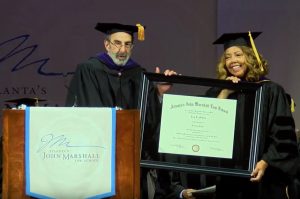
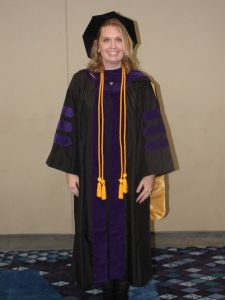 Having worked as a paralegal for a trial attorney for approximately four years and with a one-year old daughter, Jilian Sheridan decided to enroll in the part-time program at Atlanta’s John Marshall Law School. Through this program she was able to find a supportive community of students with similar struggles who understood the difficulty in finding a balance between outside responsibilities while pursuing the dream to become an attorney. Sheridan was a part of the December 2018 graduating class and therefore she was able to take the February bar exam. The day before law school graduation she found out she had passed the exam! She graduated magna cum laude and valedictorian.
Having worked as a paralegal for a trial attorney for approximately four years and with a one-year old daughter, Jilian Sheridan decided to enroll in the part-time program at Atlanta’s John Marshall Law School. Through this program she was able to find a supportive community of students with similar struggles who understood the difficulty in finding a balance between outside responsibilities while pursuing the dream to become an attorney. Sheridan was a part of the December 2018 graduating class and therefore she was able to take the February bar exam. The day before law school graduation she found out she had passed the exam! She graduated magna cum laude and valedictorian.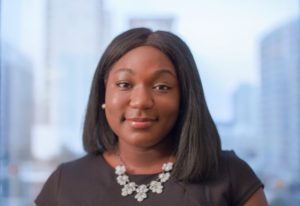
 Atlanta’s John Marshall Law School (AJMLS) Adjunct Professor and Acting District Attorney in Cobb County has been named the new Chief of Staff at the Georgia Bureau of Investigation (GBI).
Atlanta’s John Marshall Law School (AJMLS) Adjunct Professor and Acting District Attorney in Cobb County has been named the new Chief of Staff at the Georgia Bureau of Investigation (GBI).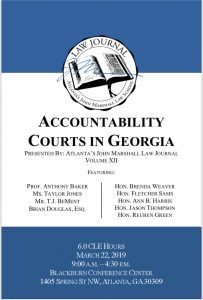 arch 22, 2019, Atlanta’s John Marshall Law School (AJMLS) will host its annual Law Journal Symposium. This event, held at the Blackburn Conference Center from 9:00 a.m. – 4:30 p.m., will consist of many esteemed guest speakers and judges all focused on this year’s topic: Accountability Courts in Georgia. Registrants will have the opportunity to receive 6.0 CLE credits for this event. Those seeking CLE credit must register under “Attorney Admission” and pay $30 (costs will cover the Bar’s booking fees). However, the event is free and open to any law students, judges, legislators, and the general public who wish to attend.
arch 22, 2019, Atlanta’s John Marshall Law School (AJMLS) will host its annual Law Journal Symposium. This event, held at the Blackburn Conference Center from 9:00 a.m. – 4:30 p.m., will consist of many esteemed guest speakers and judges all focused on this year’s topic: Accountability Courts in Georgia. Registrants will have the opportunity to receive 6.0 CLE credits for this event. Those seeking CLE credit must register under “Attorney Admission” and pay $30 (costs will cover the Bar’s booking fees). However, the event is free and open to any law students, judges, legislators, and the general public who wish to attend.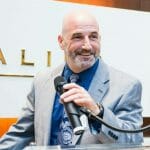 Atlanta’s John Marshall Law School (AJMLS) Professor and Director of the Criminal Justice Certificate Program, Jonathan A. Rapping, helped to facilitate the
Atlanta’s John Marshall Law School (AJMLS) Professor and Director of the Criminal Justice Certificate Program, Jonathan A. Rapping, helped to facilitate the 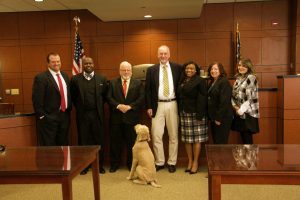 Atlanta’s John Marshall Law School (AJMLS) congratulates Vincent A. Lotti, Class of 2010, for his recent appointment as a Henry County magistrate judge. At the Law School, Lotti served as both a Peer Mentor and a Student Ambassador, and was a three time Dean’s Award recipient.
Atlanta’s John Marshall Law School (AJMLS) congratulates Vincent A. Lotti, Class of 2010, for his recent appointment as a Henry County magistrate judge. At the Law School, Lotti served as both a Peer Mentor and a Student Ambassador, and was a three time Dean’s Award recipient.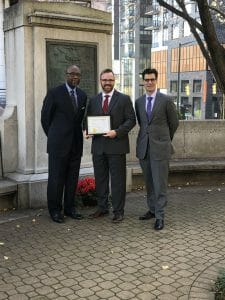
 Atlanta’s John Marshall Law School (AJMLS) is saddened to announce the loss of our dear friend and colleague, Allan Brezel. Allan was the Law School’s Associate Dean for Finance (and prior Chief Financial Officer). Known for his fatherly demeanor and dry humor, the AJMLS family feels lucky to have met Allan in early 2011. Our hearts are with his family, who were his everything.
Atlanta’s John Marshall Law School (AJMLS) is saddened to announce the loss of our dear friend and colleague, Allan Brezel. Allan was the Law School’s Associate Dean for Finance (and prior Chief Financial Officer). Known for his fatherly demeanor and dry humor, the AJMLS family feels lucky to have met Allan in early 2011. Our hearts are with his family, who were his everything.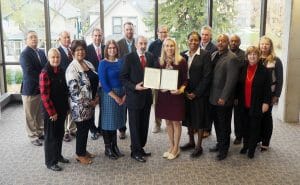 *Madison, Wisconsin – The National Conference of Bar Examiners (NCBE) and the Council on Legal Education Opportunity, Inc. (CLEO) are pleased to announce a new collaboration in support of their shared goal of increasing diversity and inclusion in the legal profession. NCBE has provided funding to bolster CLEO’s programs that help individuals from traditionally underrepresented racial and ethnic groups and disadvantaged communities achieve success in law school and prepare to take and pass the bar exam. For over 50 years, CLEO has successfully contributed to increasing the number of lawyers from diverse backgrounds in all sectors of law.
*Madison, Wisconsin – The National Conference of Bar Examiners (NCBE) and the Council on Legal Education Opportunity, Inc. (CLEO) are pleased to announce a new collaboration in support of their shared goal of increasing diversity and inclusion in the legal profession. NCBE has provided funding to bolster CLEO’s programs that help individuals from traditionally underrepresented racial and ethnic groups and disadvantaged communities achieve success in law school and prepare to take and pass the bar exam. For over 50 years, CLEO has successfully contributed to increasing the number of lawyers from diverse backgrounds in all sectors of law.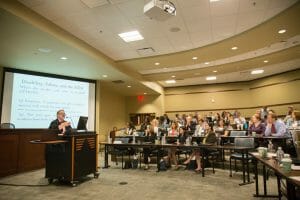 Atlanta’s John Marshall Law School (AJMLS) Professor Jeffrey Van Detta, the John E. Ryan Professor of International Business and Workplace Law, recently gave two lectures based on his most recently completed works of legal scholarship.
Atlanta’s John Marshall Law School (AJMLS) Professor Jeffrey Van Detta, the John E. Ryan Professor of International Business and Workplace Law, recently gave two lectures based on his most recently completed works of legal scholarship.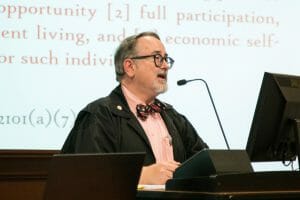 On October 18, 2018, Professor Van Detta was a featured presenter at the 25th Annual Georgia ICLE Supreme Court Update. Following a presentation he made on a blockbuster 2013 SCOTUS case concerning the Alien Tort Statute (ATS) in 20th Annual Supreme Court update in 2013, Professor Van Detta lectured on a pair of 2018 SCOTUS cases that substantially limited the kinds of claims that can be made under both the ATS and the anti-terrorism exceptions to foreign-nation sovereign immunity under the Foreign Sovereign Immunities Act (FSIA). The paper he wrote for the ICLE program has been accepted by the University of Indiana Robert H. McKinney School of Law’s International & Comparative Law Review, for publication in its Spring 2019 issue. In addition, the University of Indiana has invited Professor Van Detta to be one of the featured speakers at the Law Review‘s Annual Symposium in Spring 2019. Rubin v. Islamic Republic of Iran and Jesner v. Arab Bank, PLC: SCOTUS Trims To Statutory Boundaries The Recovery In U.S. Courts Against Sponsors of Terrorism and Human-Rights Violations Under FSIA and ATS, 29 Indiana Int’l & Comparative Law Review ___ (Spring 2019).
On October 18, 2018, Professor Van Detta was a featured presenter at the 25th Annual Georgia ICLE Supreme Court Update. Following a presentation he made on a blockbuster 2013 SCOTUS case concerning the Alien Tort Statute (ATS) in 20th Annual Supreme Court update in 2013, Professor Van Detta lectured on a pair of 2018 SCOTUS cases that substantially limited the kinds of claims that can be made under both the ATS and the anti-terrorism exceptions to foreign-nation sovereign immunity under the Foreign Sovereign Immunities Act (FSIA). The paper he wrote for the ICLE program has been accepted by the University of Indiana Robert H. McKinney School of Law’s International & Comparative Law Review, for publication in its Spring 2019 issue. In addition, the University of Indiana has invited Professor Van Detta to be one of the featured speakers at the Law Review‘s Annual Symposium in Spring 2019. Rubin v. Islamic Republic of Iran and Jesner v. Arab Bank, PLC: SCOTUS Trims To Statutory Boundaries The Recovery In U.S. Courts Against Sponsors of Terrorism and Human-Rights Violations Under FSIA and ATS, 29 Indiana Int’l & Comparative Law Review ___ (Spring 2019).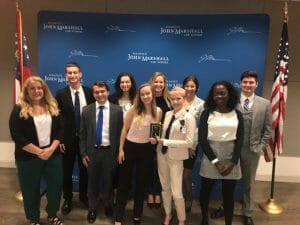
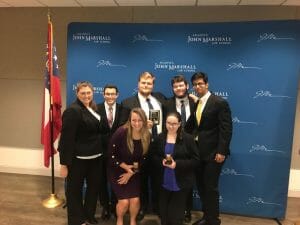
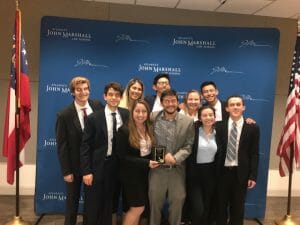
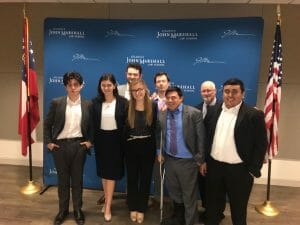
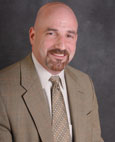

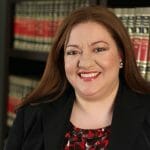 The Atlanta Bar Association is hosting their
The Atlanta Bar Association is hosting their